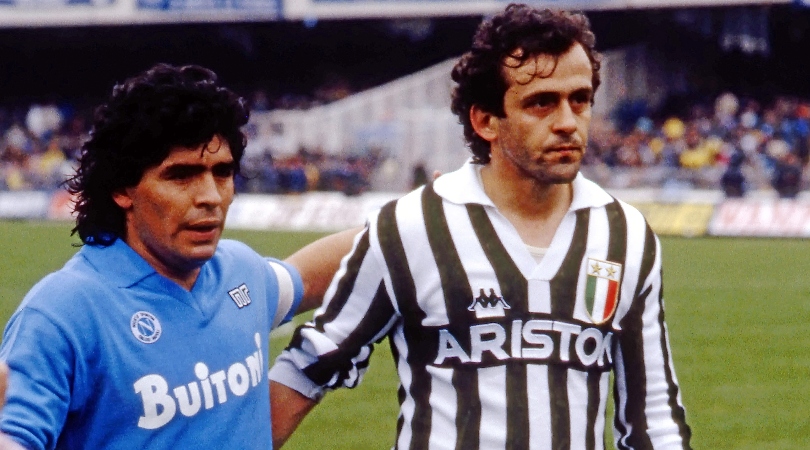
The 1980s was a memorable decade for football and a special era for midfielders.
While today's fast-paced pressing game allows means the ball is usually moved on quickly, creative players had much more time to express themselves in the 1980s.
It is therefore no surprise that creators and playmakers dominate this selection, but some more defensive-minded players are also included as we run through the best 32 midfielders of the 1980s.
32. Paul Breitner
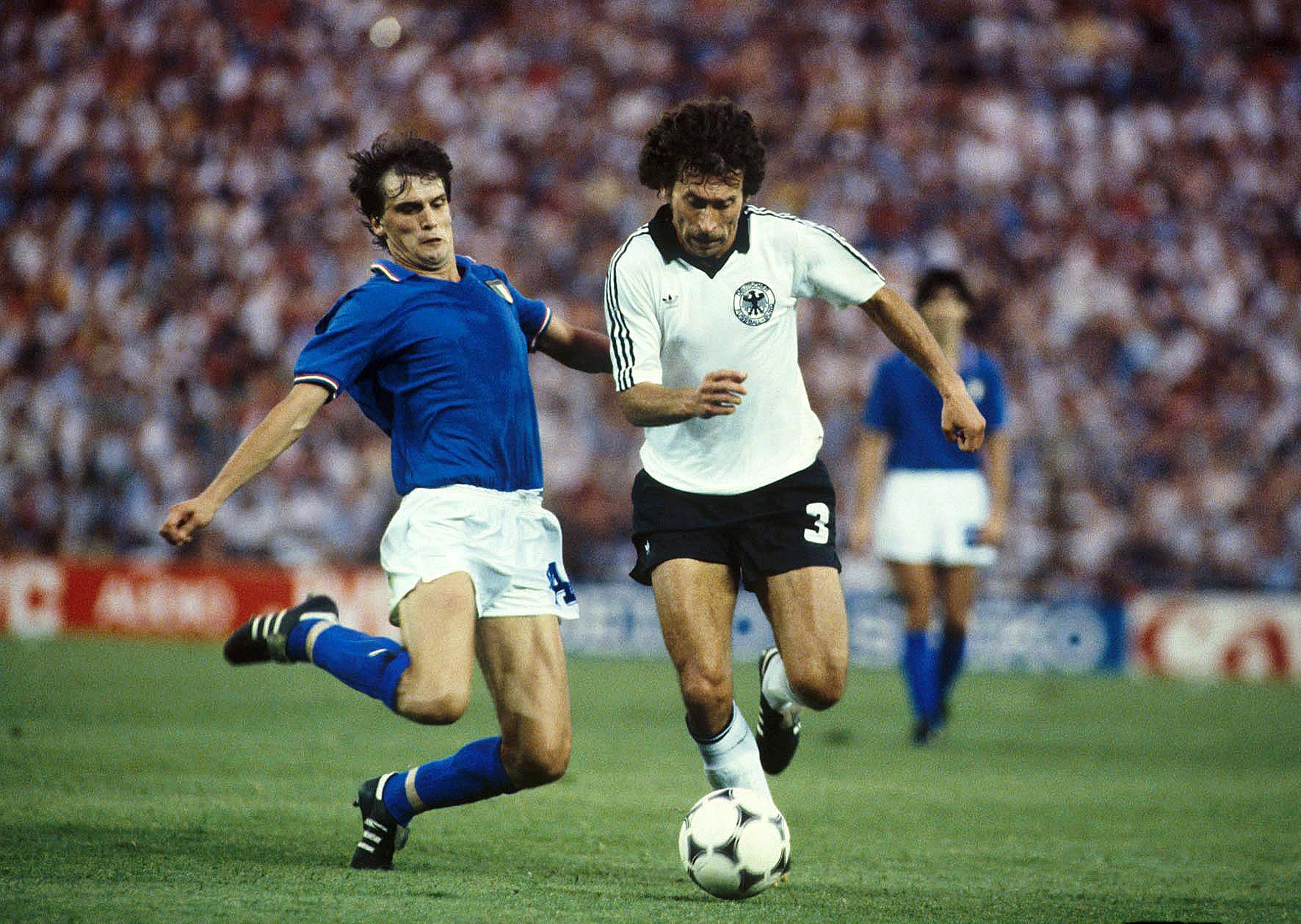
Paul Breitner was part of the West Germany team which won the 1974 World Cup, playing as full-back in the 2-1 win over the Netherlands.
He scored in that match and was also on target from midfield in the 1982 defeat against Italy, making him one of only five players to net in two World Cup finals. He was Germany's Footballer of the Year and a Ballon d'Or runner-up in 1981.
31. Jorge Burruchaga

Diego Maradona was the undoubted star and inspiration behind Argentina's World Cup win in 1986 and he also set up the winning goal in the final against West Germany – but Jorge Burruchaga scored it.
A hard-working attacking midfielder with a good range of passing and an eye for goal, Burruchaga also appeared in the 1990 final and won the Copa Libertadores with Independiente in 1984.
30. Liam Brady
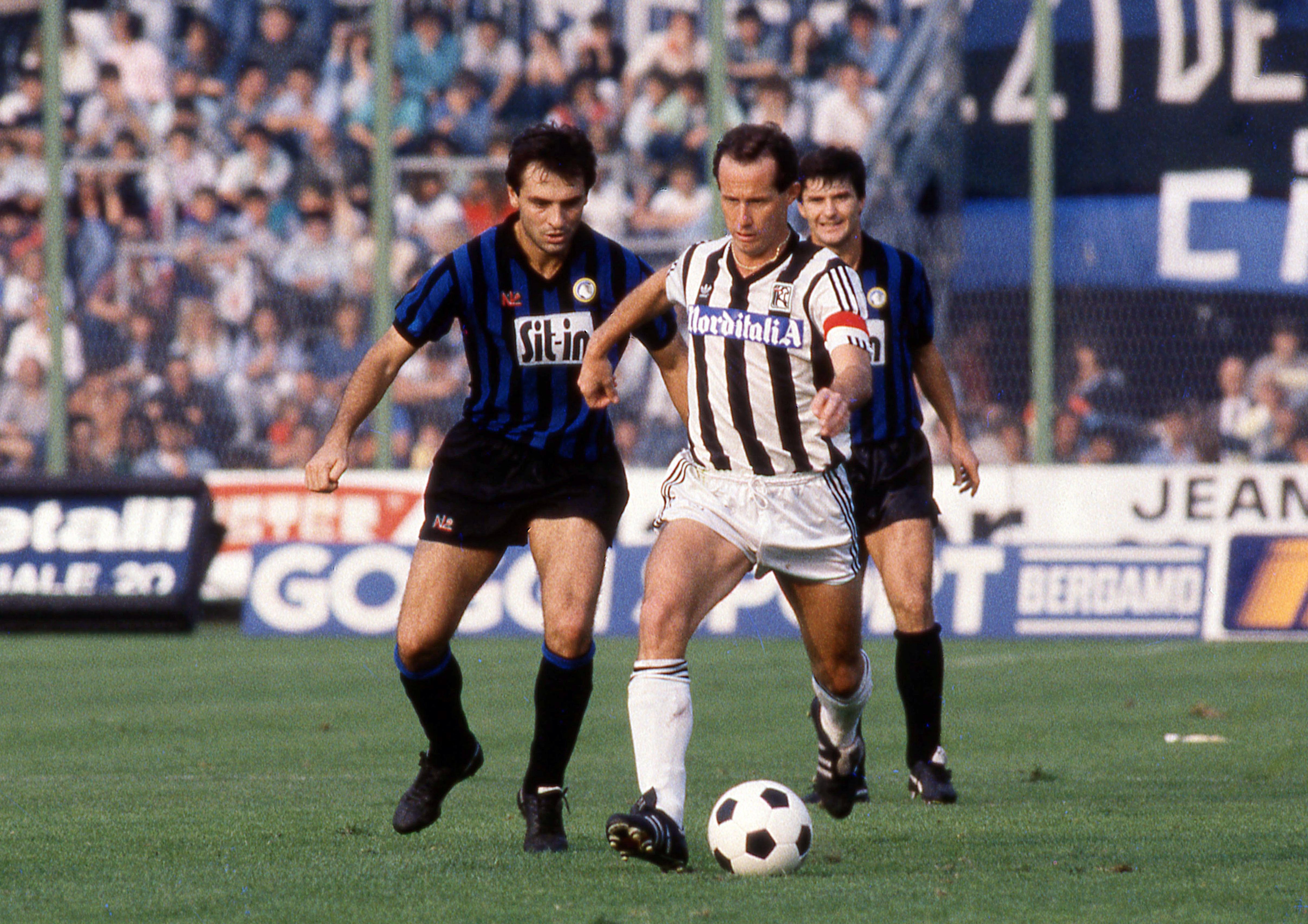
Liam Brady is considered by many to be the Republic of Ireland's best-ever player and is also fondly remembered by Arsenal fans for his successful spell in north London in the late 1970s.
In 1980, he moved to Juventus and was a key part of the team which won back-to-back Serie A titles. An elegant midfielder, he possessed excellent technical ability and a fine range of passing. Brady went on to play for Sampdoria, Inter and Ascoli before ending his career at West Ham.
29. Carlo Ancelotti
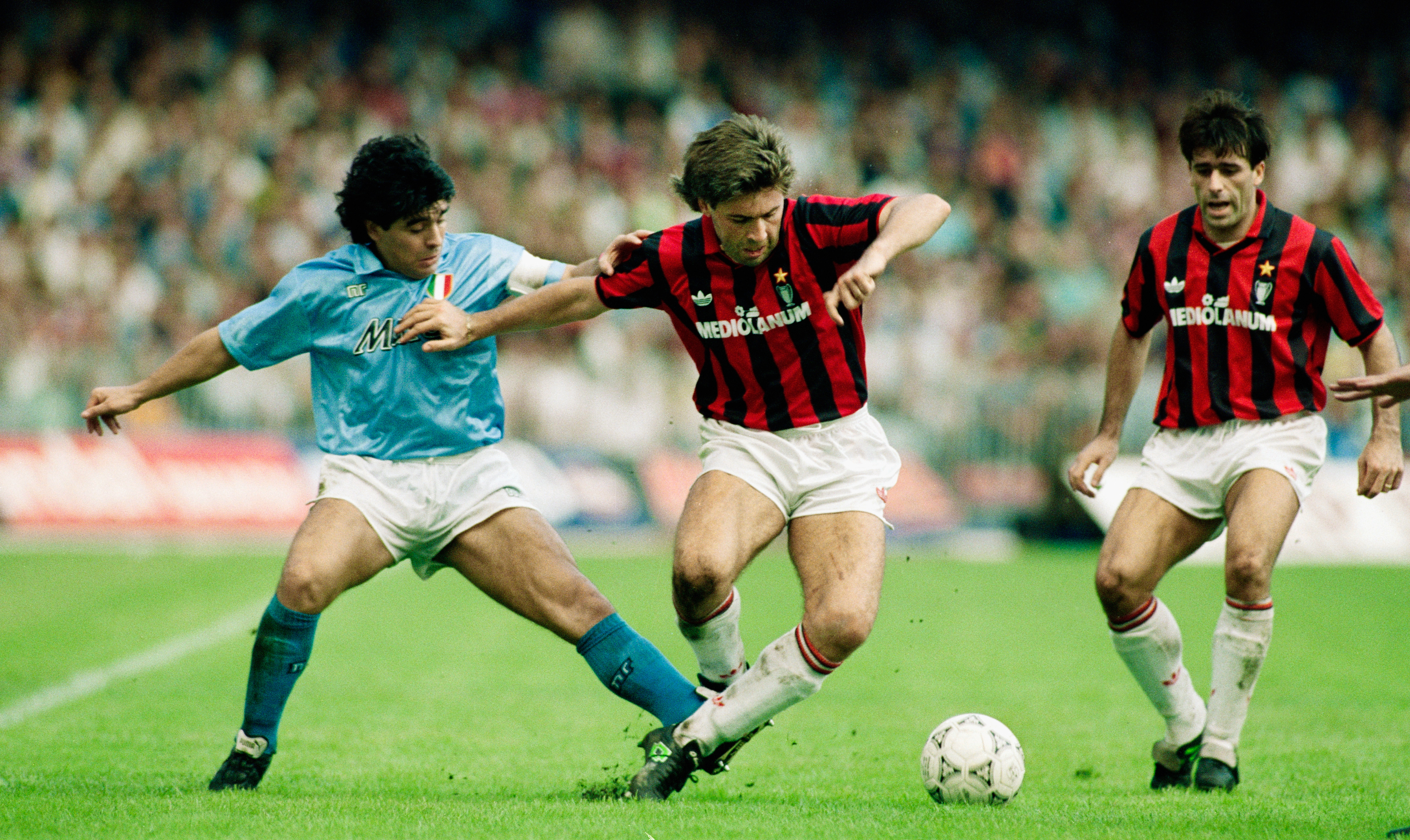
Carlo Ancelotti is best known for his coaching career these days, but the experienced manager was also an excellent midfielder back in his playing days.
Often deployed as a deep-lying playmaker, Ancelotti was unfortunate with injuries at international level, missing out on Italy's 1982 World Cup win. But he was an integral part of AC Milan's success later in the decade and also won a Scudetto at Roma.
28. Michel
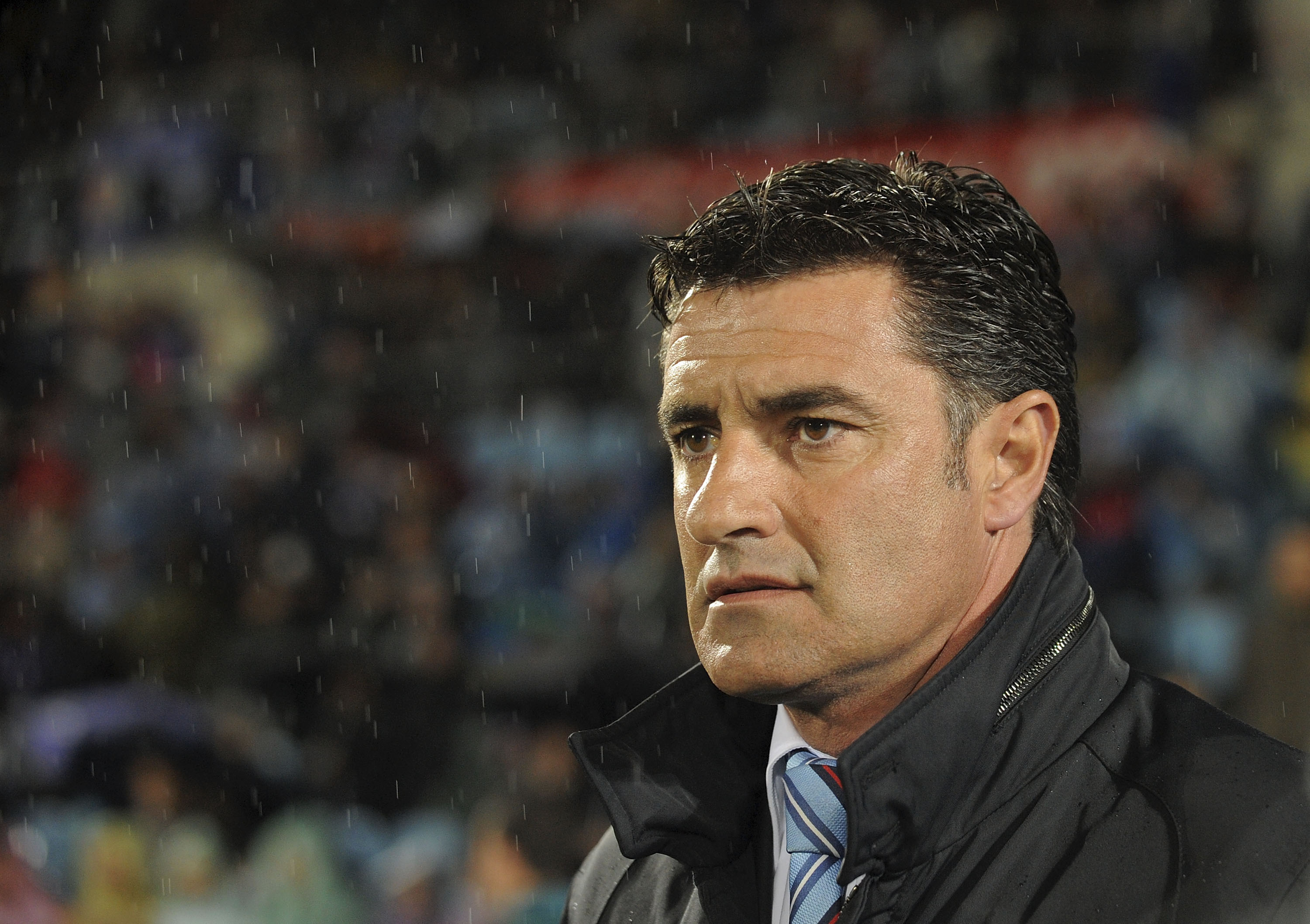
Long before Luis Figo or David Beckham rocked up at the Santiago Bernabeu, Real Madrid's right flank belonged to Michel.
The former Spain winger came through the youth ranks at Real as one of the five from the famed 'Quinta del Buitre'. Blessed with a wonderful cross, he was key as Los Blancos claimed five straight La Liga titles – and two UEFA Cups – between 1985 and 1990.
27. Enzo Scifo
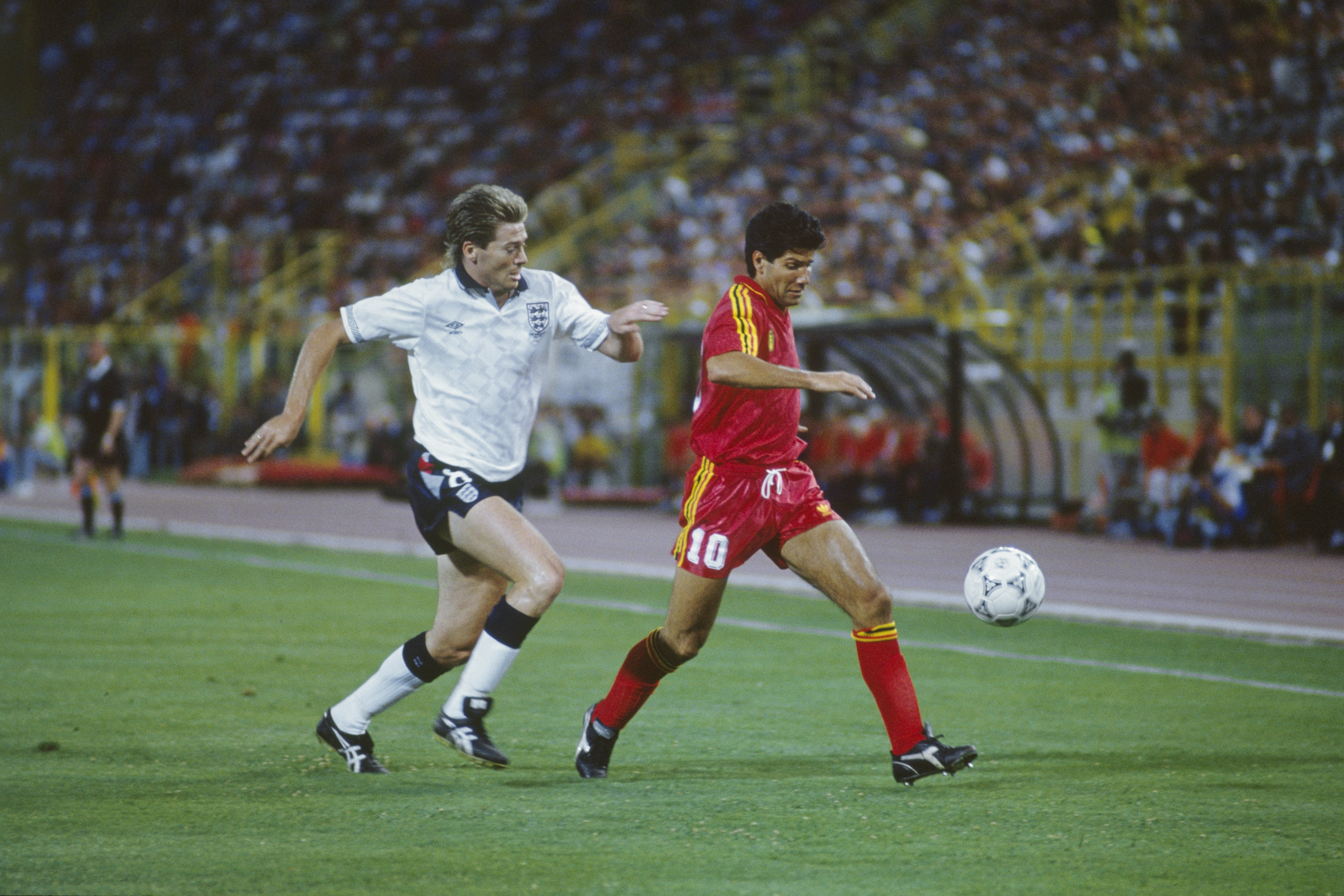
A classic number 10 with extraordinary vision and technical ability, Enzo Scifo rose to prominence at Anderlecht and helped Belgium finish fourth at the 1986 World Cup at the age of just 20.
Born in Belgium to Sicilian parents, Scifo was nicknamed "Little Pele" in his younger years, but his career did not quite live up to its early promise. Still, though, he is considered one of the best playmakers of the 1980s.
26. John Barnes
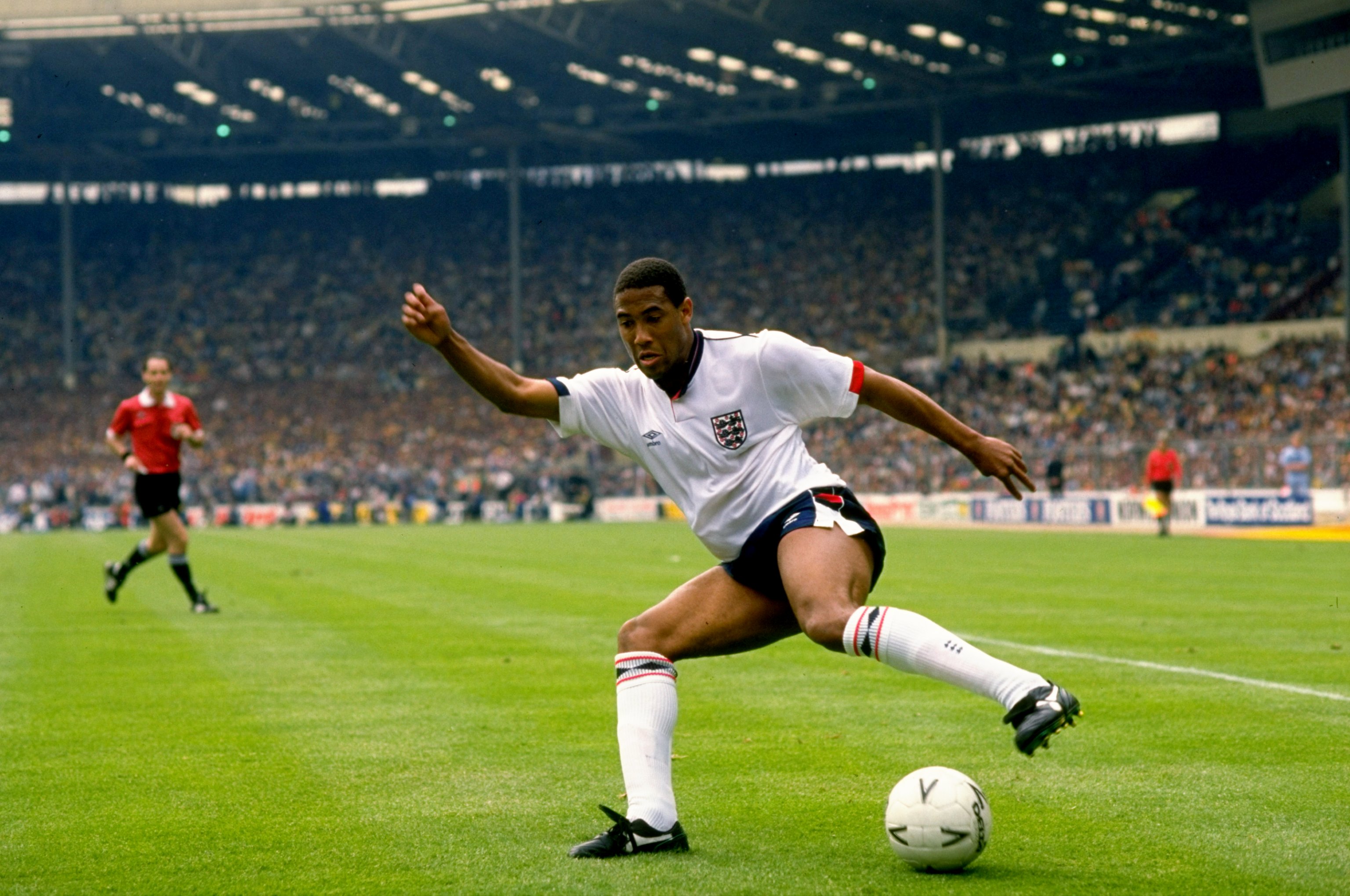
John Barnes was an extraordinary winger for both Watford and Liverpool in the 1980s and moved into a central role later in his career.
Born in Jamaica, he moved to London at the age of 12. His England displays did not quite match his club career, although he did score one of the Three Lions' best-ever goals in a friendly against Brazil at the Maracana in 1984 and almost got Bobby Robson's side back into their World Cup quarter-final against Argentina two years later.
25. Bruno Conti
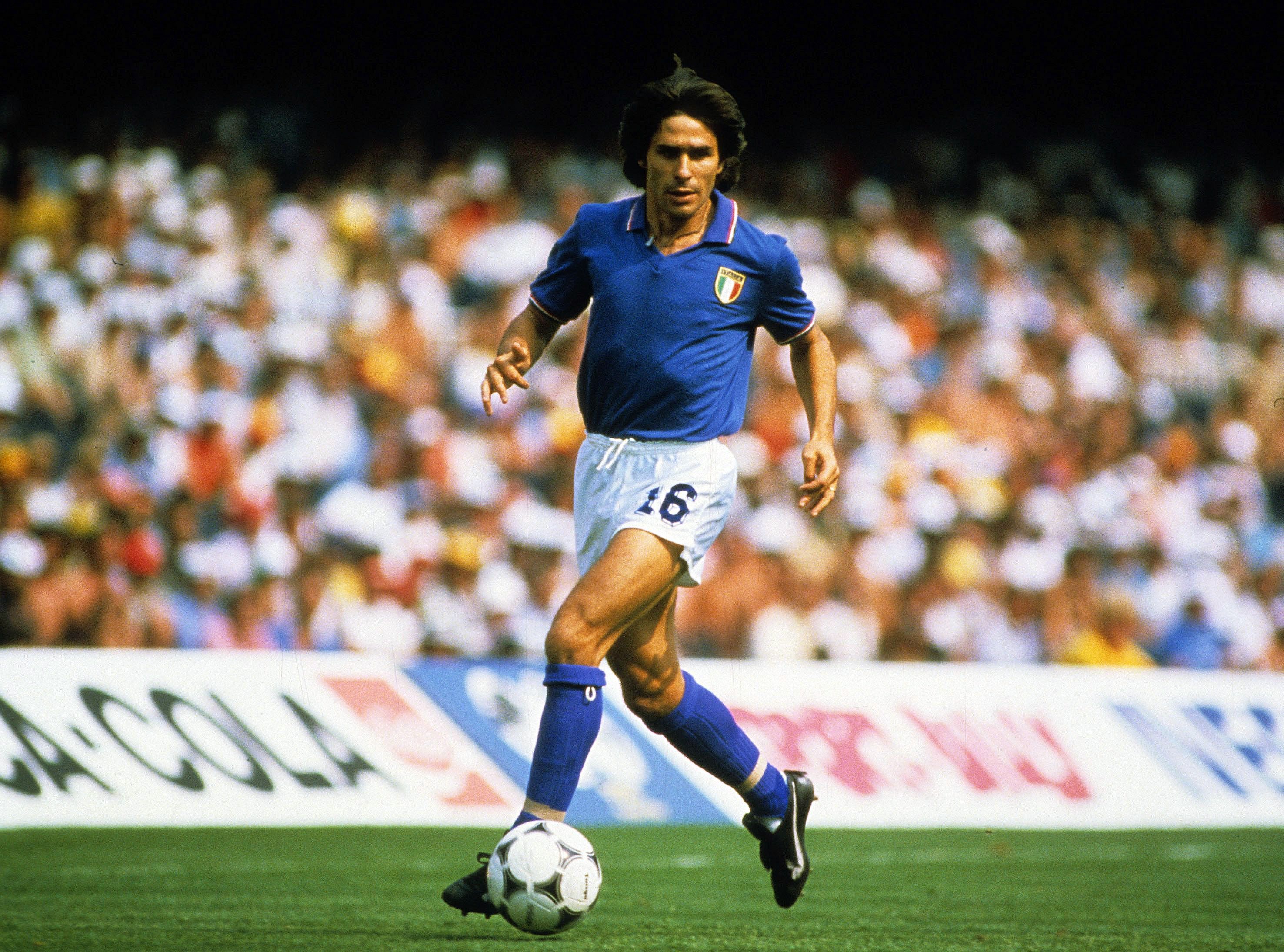
Bruno Conti was instrumental in Italy's World Cup win against West Germany in 1982. The winger was involved in the build-up to Marco Tardelli's goal, set up Alessandro Altobelli for the Azzurri's third and also won a penalty.
Aside from two loan spells at Genoa, he spent his entire career at Roma and is considered one of the club's greatest players. Many in Italy also regard him as the nation's best-ever right winger.
24. Jan Ceulemans
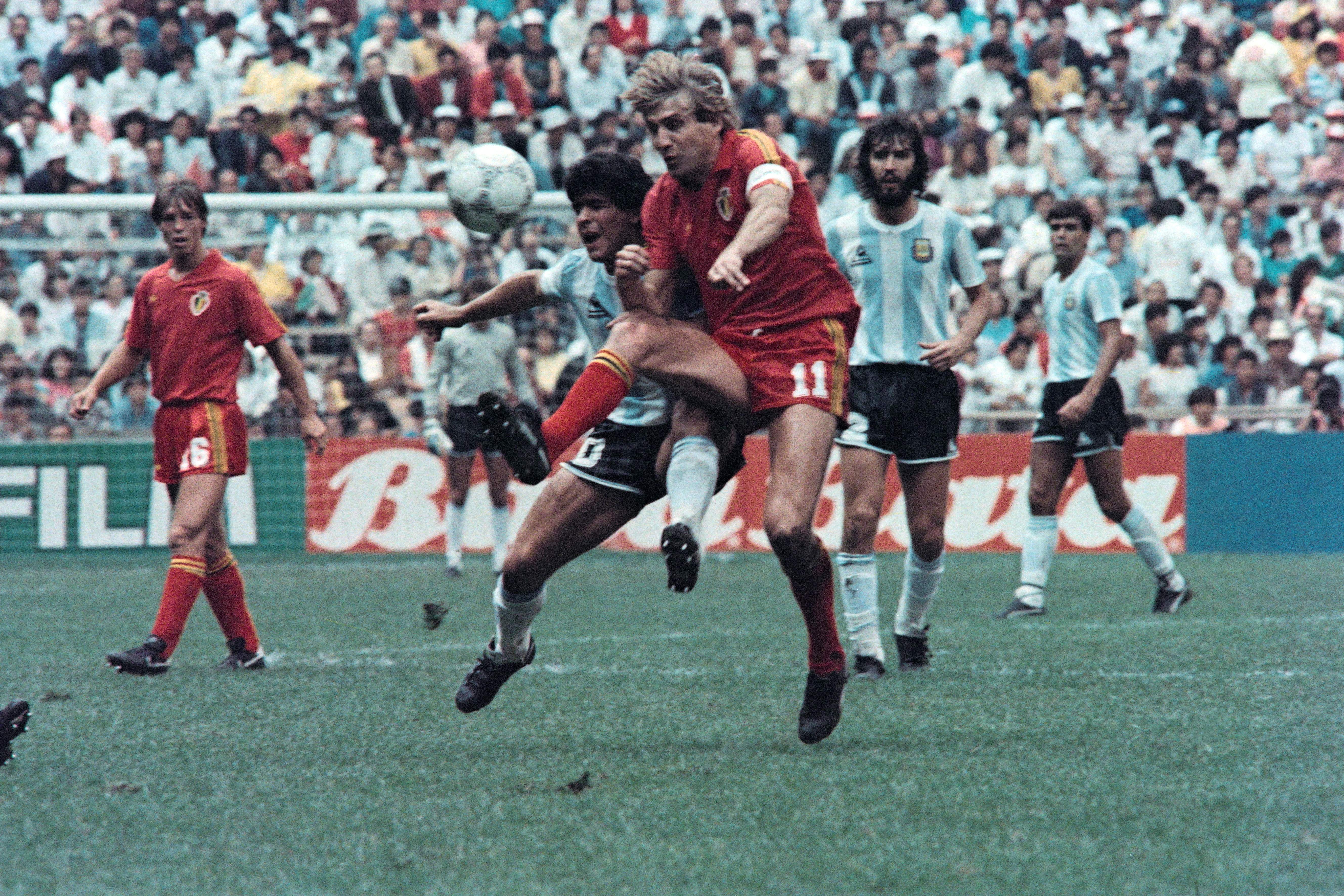
Jan Ceulemans was at the heart of Belgium's successful sides in the 1980s, driving them forward from midfield and scoring plenty of goals as the Red Devils came second at Euro 1980 and fourth at the World Cup in 1986.
The lanky midfielder finished fifth in the 1980 Ballon d'0r, was included on Pele's list of the 125 greatest living footballers in 2004 and once posed for a photo with AC Milan's board – only to reject a move and stay with Club Brugge in his homeland. He never did leave.
23. Jean Tigana
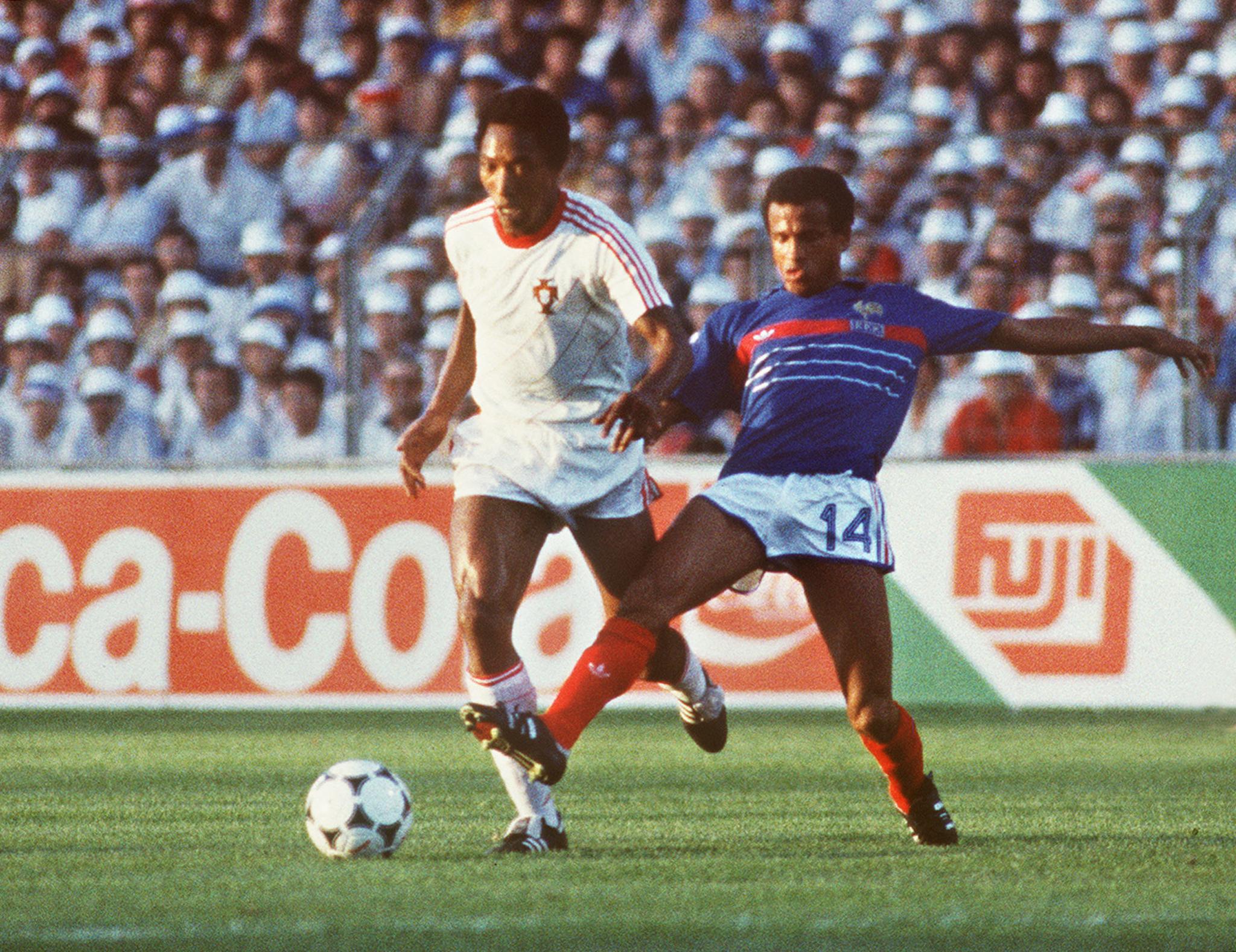
Jean Tigana was part of France's memorable "magic square" midfield of the mid-1980s, alongside Michel Platini, Alain Giresse and Luis Fernandez.
His best year came in 1984, when he helped Les Bleus win the Euros at home and finished second behind Platini in the Ballon d'Or. Born in Bamako, French Sudan (now Mali), Tigana was a hard-working central midfielder with strong defensive skills, plenty of stamina and good dribbling ability. He also won five Ligue 1 titles with Bordeaux and Marseille.
22. Graeme Souness
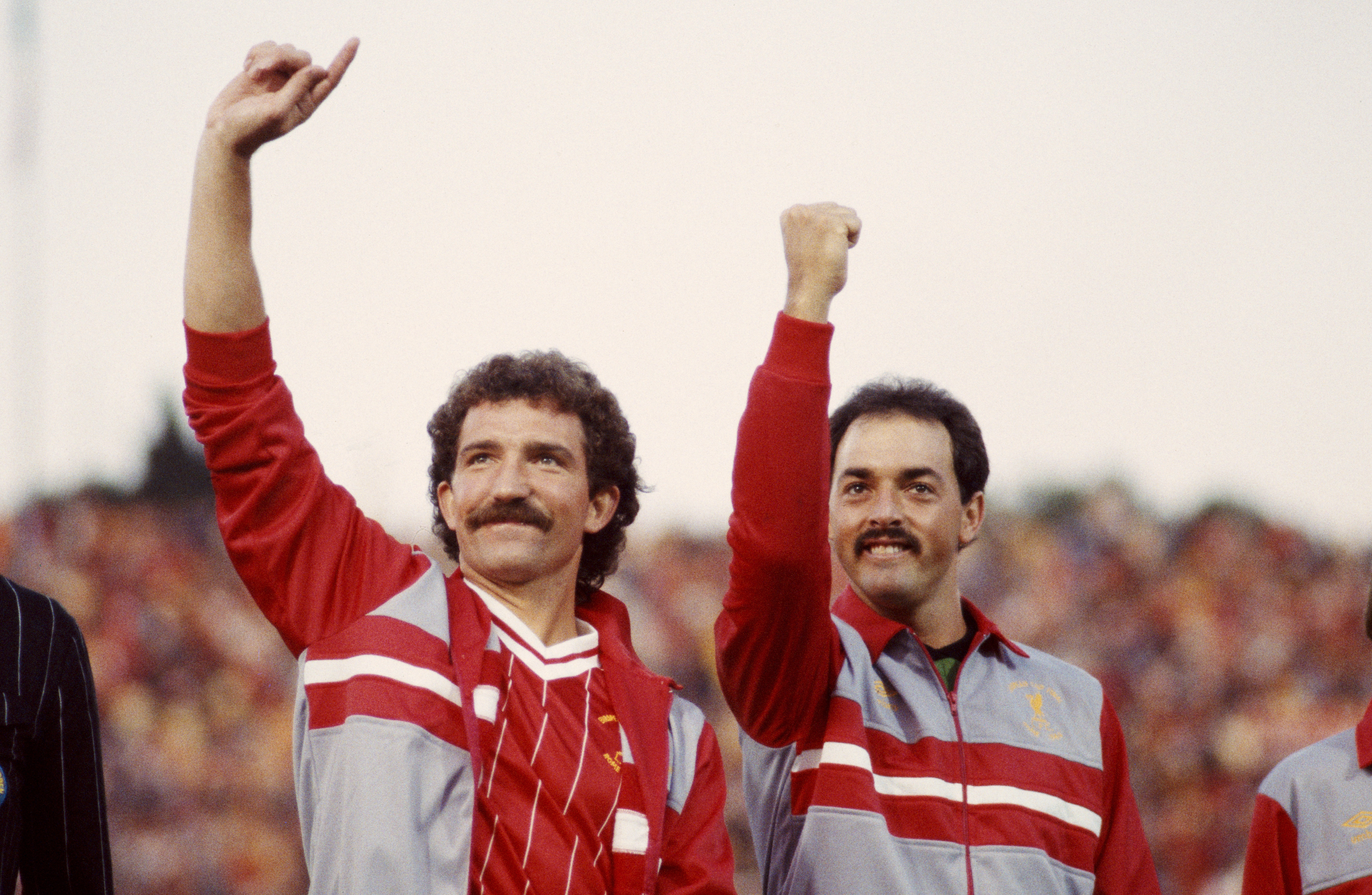
Younger football fans will know Graeme Souness for his role as a pundit over the past few years, but might not be aware that he was also one of the finest players of his generation.
A midfield enforcer at Liverpool in their hugely successful spell in the early 1980s, Souness also had a fine range of passing and led by example. "Among midfielders," team-mate Alan Hansen once said, "Graeme was the king." He is also an icon at Sampdoria, where he won a Coppa Italia, and is one of Scotland's all-time greats.
21. Paulo Futre
Towards the end of an injury-plagued career in the 1990s, Paulo Futre had become something of a journeyman and rarely stayed for very long at any of his clubs. But in the 1980s, the Portuguese winger was elite.
A European Cup winner at Porto, Futre went on to enjoy a successful spell at Atletico Madrid. An explosive winger with plenty of tricks and superb dribbling skills, he finished second in the 1987 Ballon d'Or and at his peak, was compared to the great Diego Maradona.
20. Roberto Baggio
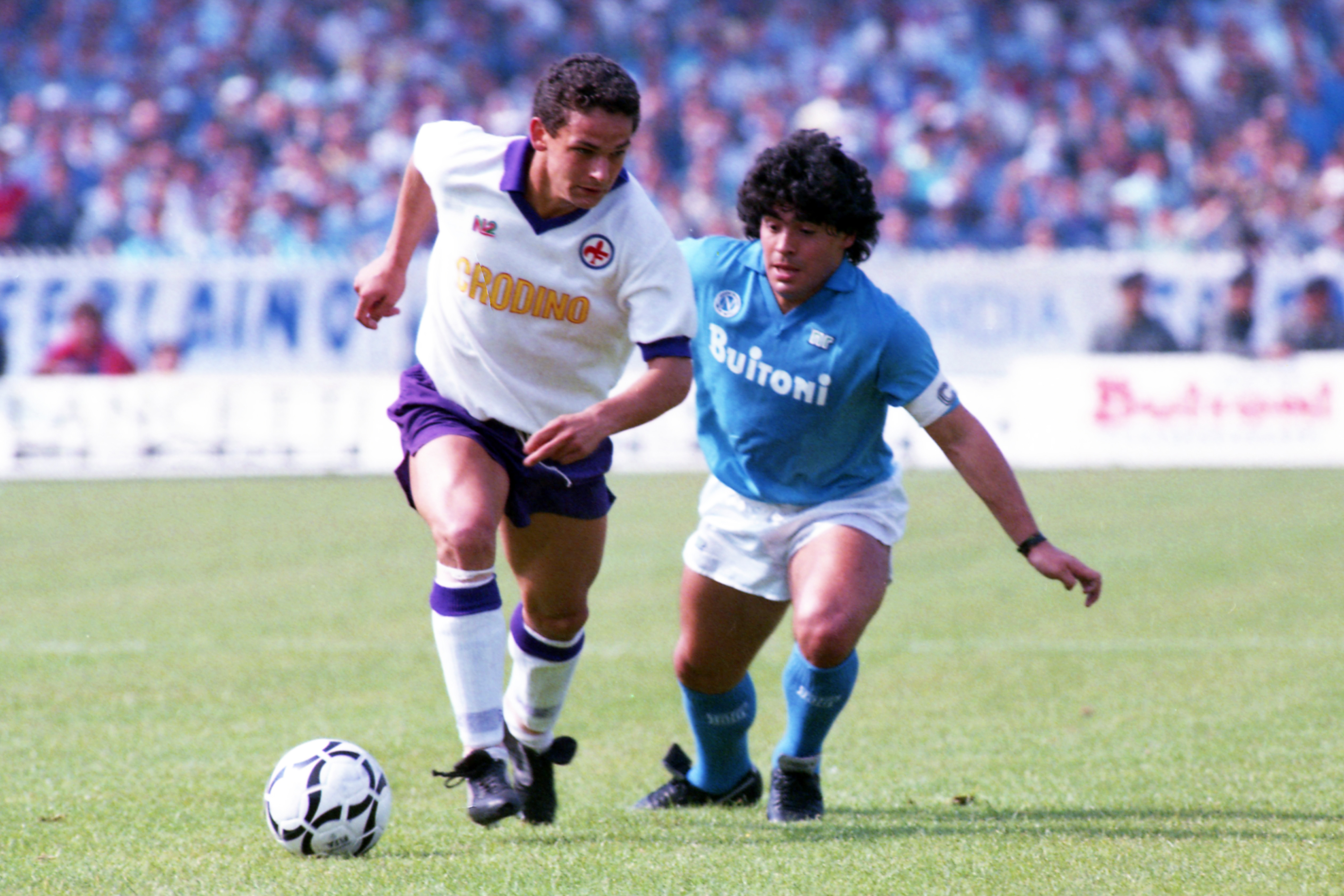
Roberto Baggio is better known, internationally at least, for his football in the first half of the 1990s with Juventus and Italy. But by the late 1980s, the "Divine Ponytail" was already an extraordinary talent at Fiorentina.
His first goal for Fiorentina came against Diego Maradona's Napoli in 1987 and saved the club from relegation. In his last season, he led La Viola to the UEFA Cup final, which they lost to Juventus. A wonder goal at the 1990 World Cup and a world-record move to Juve followed, but the foundations for all that were laid in Florence.
19. Glenn Hoddle
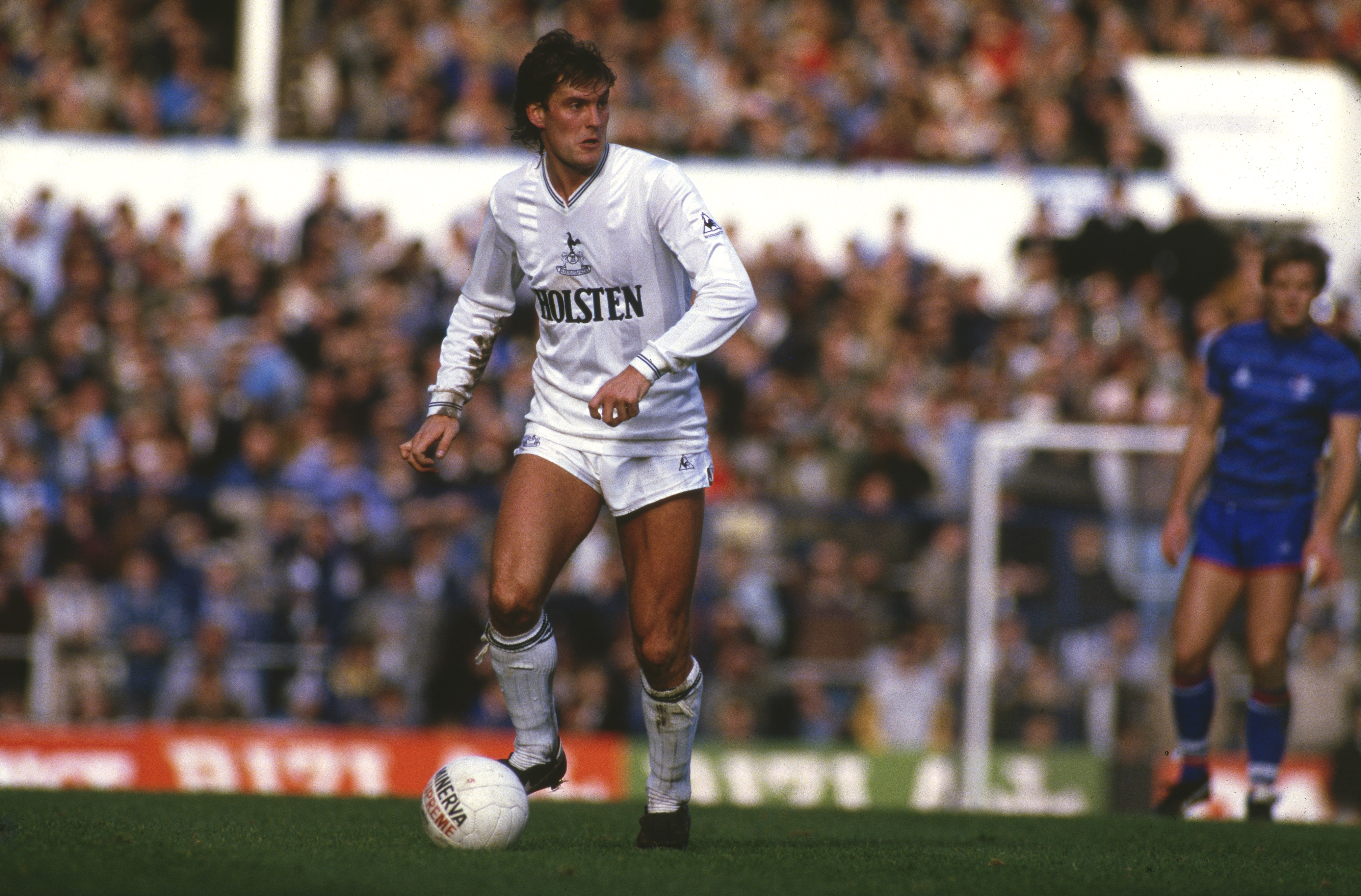
Voted as Tottenham's best-ever footballer by a group of former Spurs players and fans in 2016, Glenn Hoddle was a supremely gifted number 10 with wonderful vision and passing – and a scorer of spectacular goals.
Hoddle won 53 caps for England between 1979 and 1988, but Michel Platini said it should have been 100. Ruud Gullit claimed he had been born in the wrong country. Used out of position by England, he rarely replicated his club form at international level. A missed opportunity.
18. Zbigniew Boniek
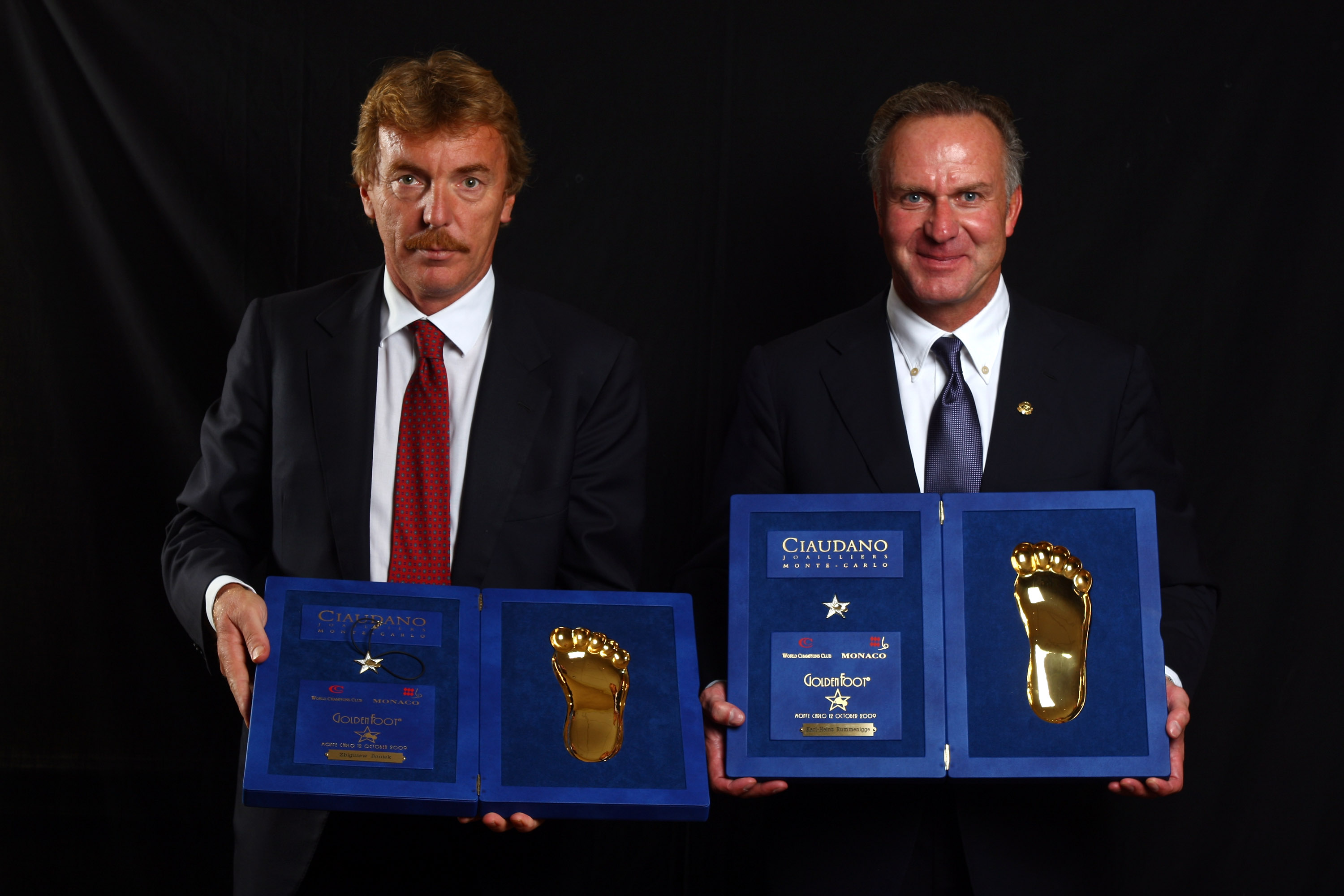
An intelligent playmaker with a trademark moustache, Zbigniew Boniek led Poland to third place in the 1982 World Cup and also finished third in the Ballon d'Or that year.
After emerging with Widzew Lodz in his homeland, Boniek spent six seasons with Juventus and Roma in the 1980s, helping the Bianconeri to the European Cup in 1985 and earning praise for his decisive performances along the way. He was named on Pele's list of the 125 best living footballers in 2004.
17. Carlos Valderrama

Carlos Valderrama is another player on this list better known for his football in the 1990s, but the Colombian playmaker with the trademark afro hair was also a force in the late 1980s.
Often operating in a deep-lying role, Valderrama came to prominence at Deportivo Cali and was named South American Player of the Year in 1987 for his performances at the Copa America that year as Colombia came third.
16. Bryan Robson
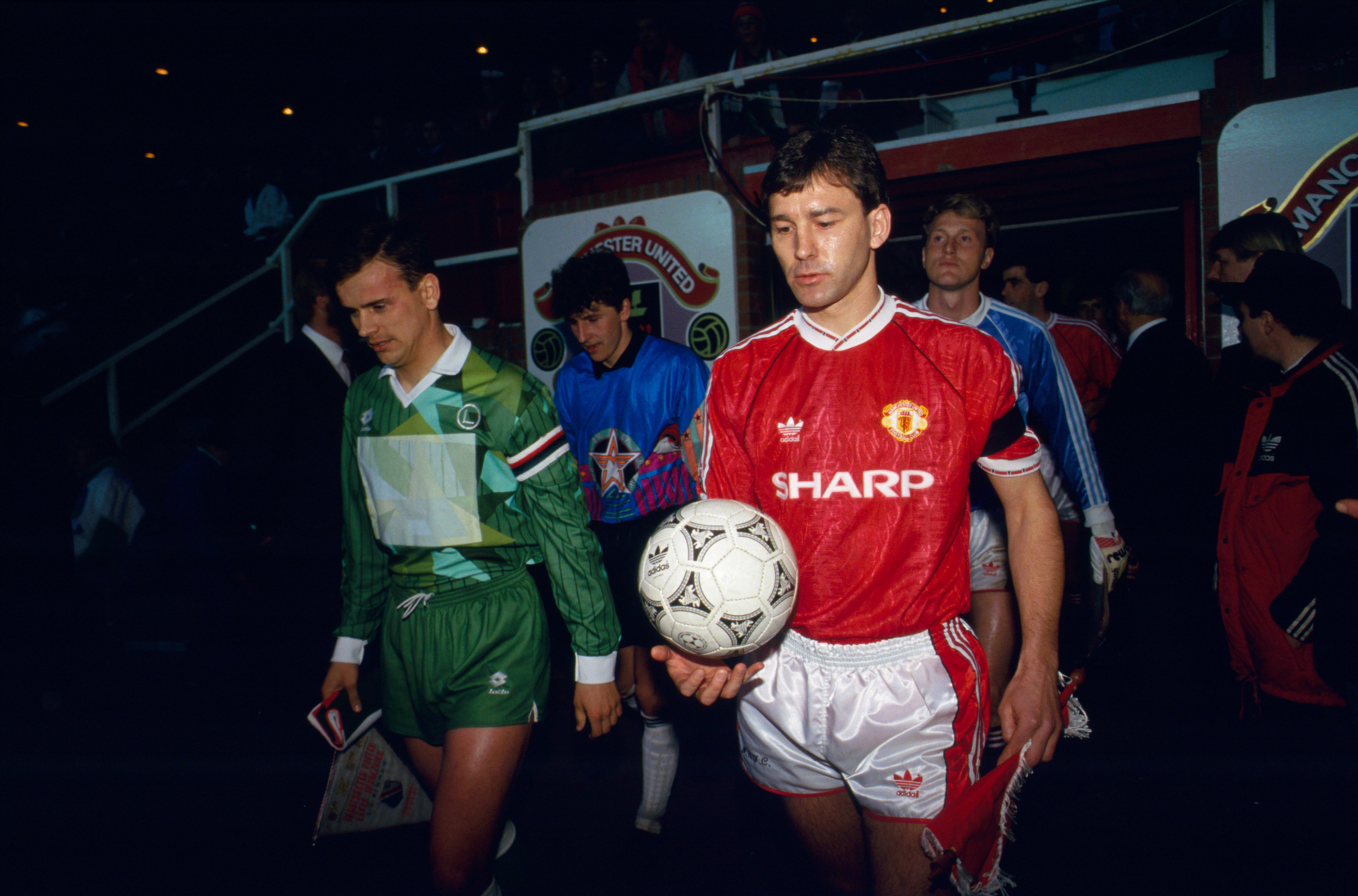
An all-action, fiercely competitive midfielder for Manchester United and England in the 1980s, Bryan Robson was nicknamed Captain Marvel for his strong leadership with club and country. He also possessed great stamina and a good goals record.
Robson won 90 caps for England and scored 26 goals, but was unfortunate to get injured in back-to-back World Cups in 1986 and 1990. Paul Gascoigne said in his autobiography that Robson was the greatest player of his generation.
15. Gheorghe Hagi
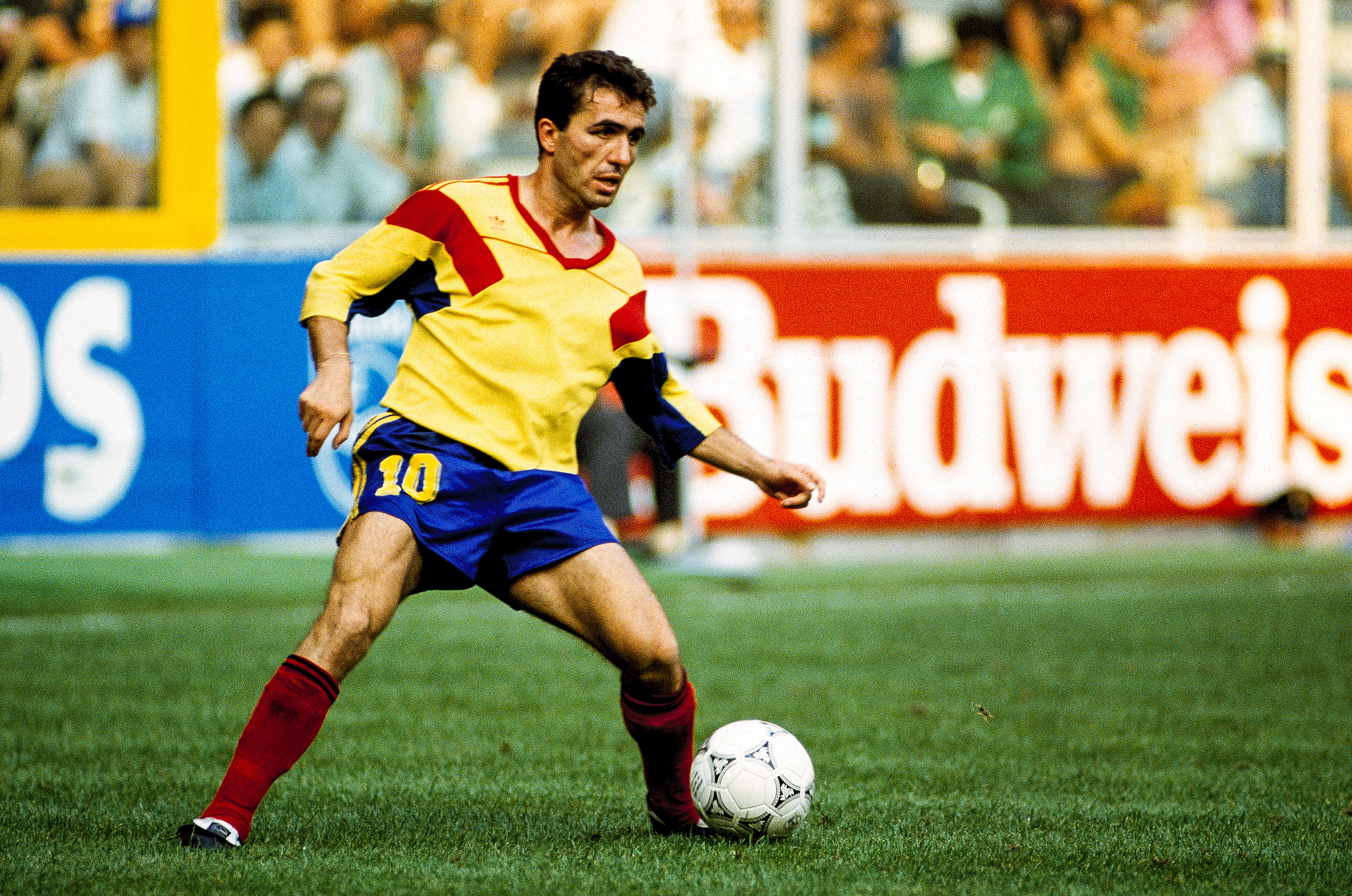
Another player more prominent internationally during the 1990s, Gheorghe Hagi was already a big star in his native Romania in the previous decade.
A Romanian international since 1983, Hagi spent three-and-a-half seasons at Steaua Bucharest and hit the winner in the club's UEFA Super Cup win over Dynamo Kyiv Shortly after joining in 1987. He went on to play for Real Madrid and Barcelona after an impressive showing at the World Cup in 1990.
14. Marco Tardelli
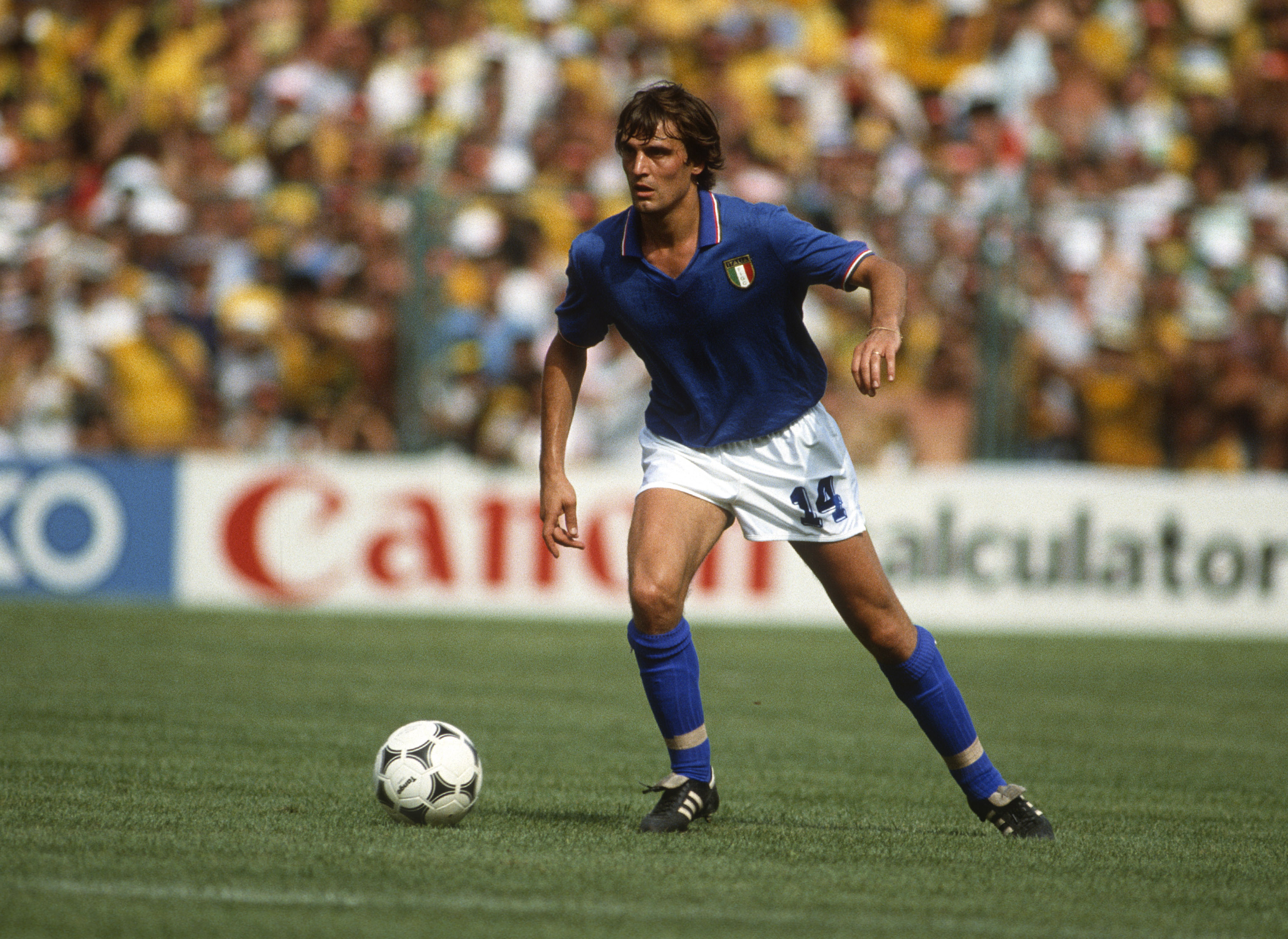
A tough-tackling yet elegant defensive midfielder, Marco Tardelli is considered one of Italy's all-time greats and is best remembered for helping the Azzurri win the 1982 World Cup in Spain.
Tardelli's iconic celebration after scoring in the 1982 final against West Germany has gone down as one of the great World Cup moments. He went on to captain Italy between 1983 and 1985 and also won a host of trophies in a 10-season spell at Juventus, including the European Cup in 1985.
13. Alain Giresse
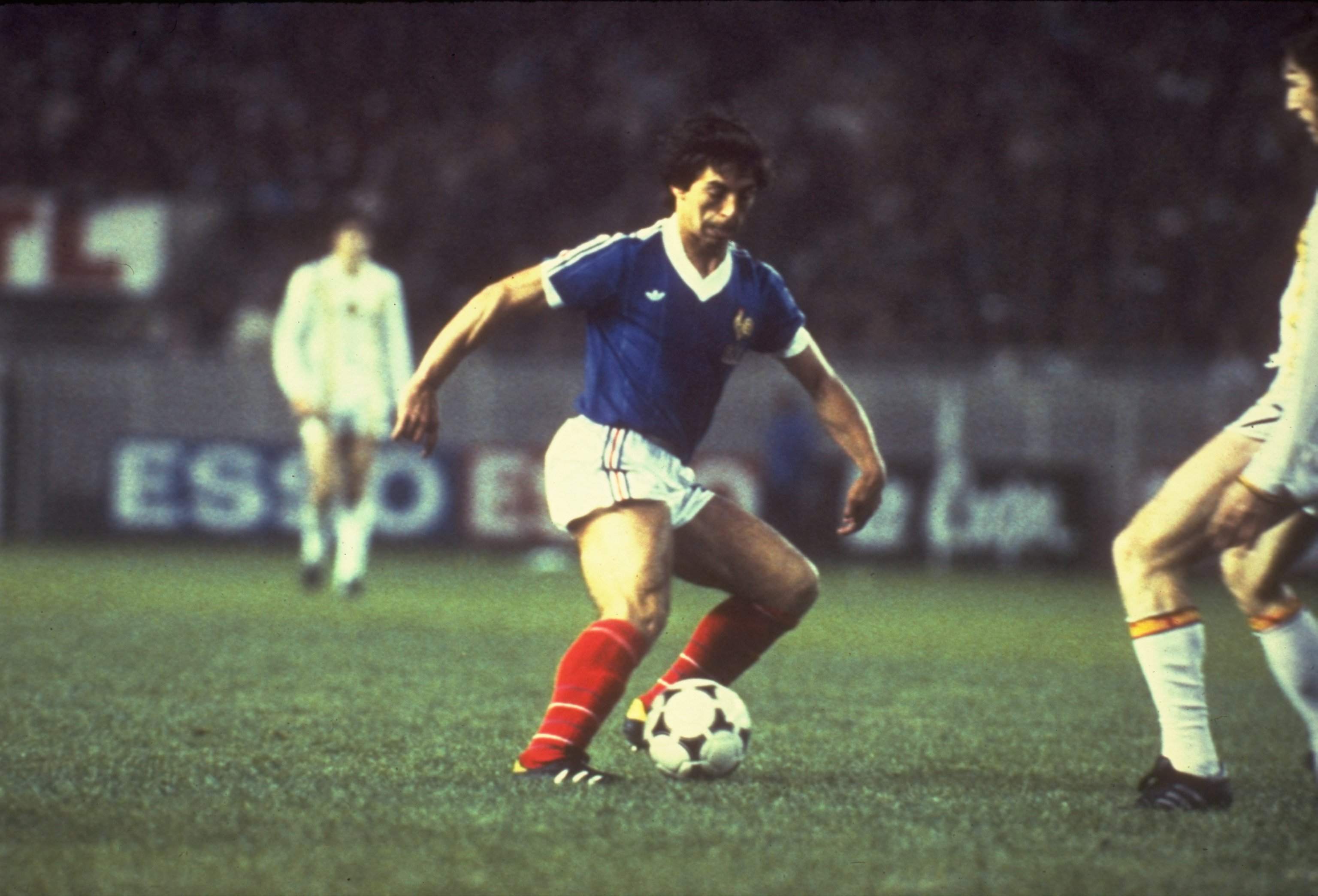
Standing at just 1.63 m (5 ft 4 in), Alain Giresse used his short stature to great effect as an agile playmaker during the 1980s, changing direction with great acceleration and skill.
A key part of France's "magic square" midfield, Giresse helped Les Bleus win the European Championship in 1984 and was named French Player of the Year in 1982, 1983 and 1987. He was also a runner-up in the 1982 Ballon d'Or.
12. Pierre Littbarski
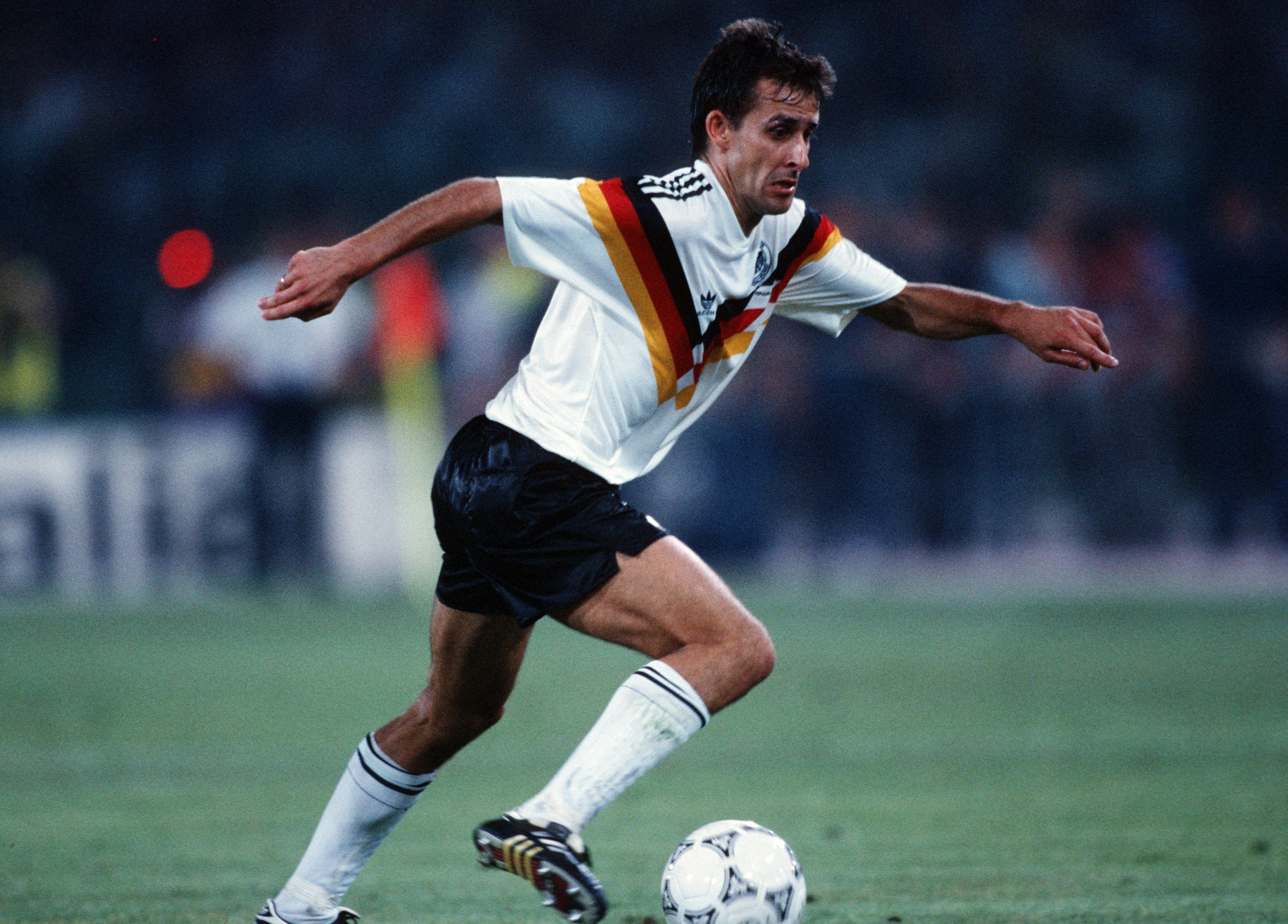
At just 1.68 m (5 ft 6 in), Pierre Littbarski stood out in German teams more known for their tall and powerful players.
A tricky winger with an eye for goal, Littbarski liked to drift in from the flank and get involved around the area. He was the top assist provider at the 1982 World Cup as West Germany lost in the final and was runner-up again in 1986, before finally winning the title in 1990.
11. Michael Laudrup

Michael Laudrup probably played his best football in the early 1990s at Barcelona and then at Real Madrid, but the Danish playmaker was already one of the world's finest in the 1980s.
Widely regarded as one of the most skillful and elegant players of his generation, Laudrup scored a wonderful solo goal against Uruguay at the 1986 World Cup and had spells at Lazio and Juventus before a move to Barcelona in 1989.
10. Falcao
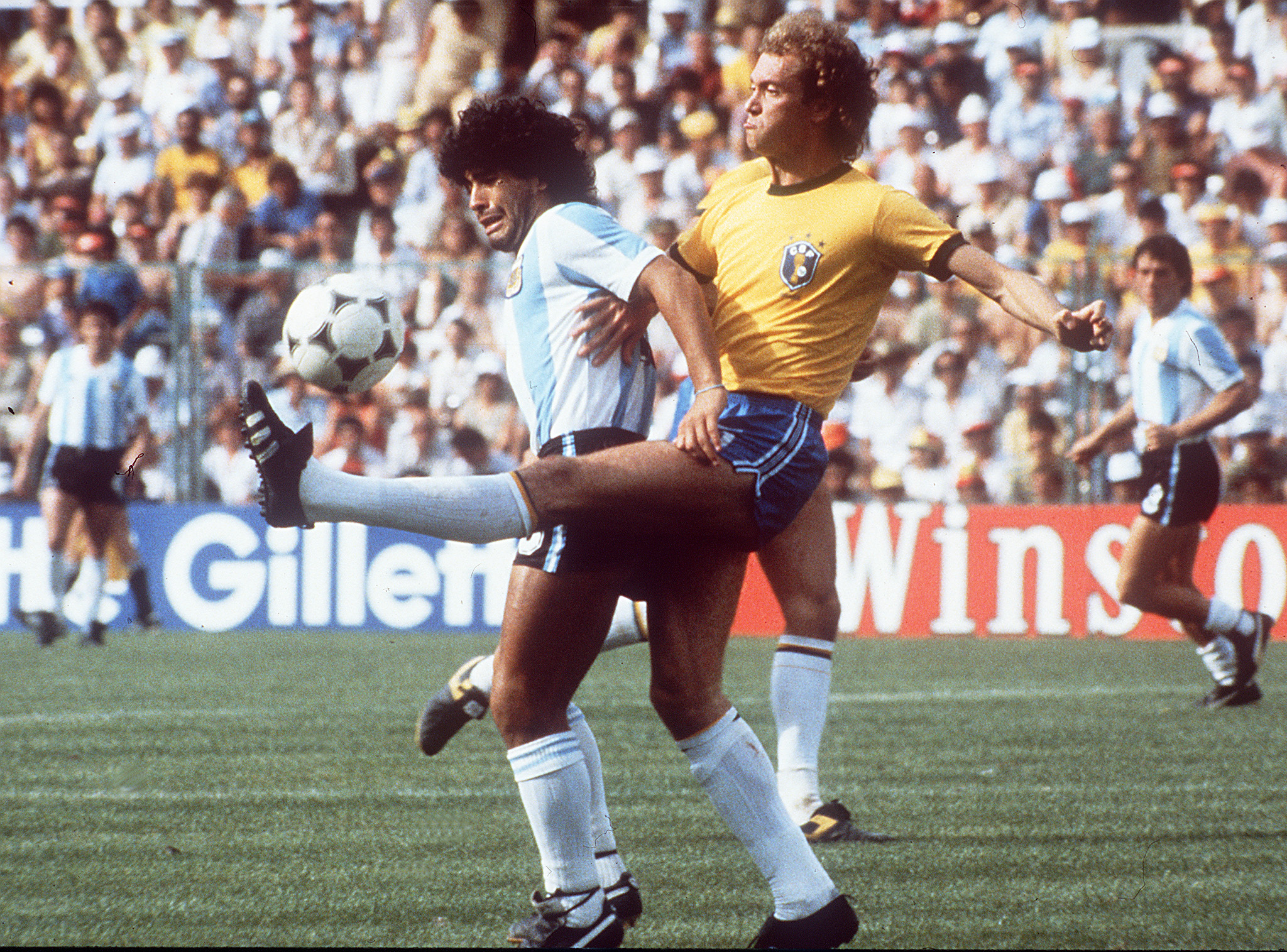
An intelligent and elegant deep-lying playmaker who would often initiate attacks from his own half, Falcao was a key member of Brazil's 1982 team – often considered the finest never to win a World Cup.
Falcao scored Brazil's second goal in their epic 3-2 defeat to eventual champions Italy and won the Silver Ball for the tournament's second-best player. The Roma midfielder was reportedly so distressed after the match that he wanted to give up football. He was back in 1986, but his influence had waned by then.
9. Lothar Matthaus
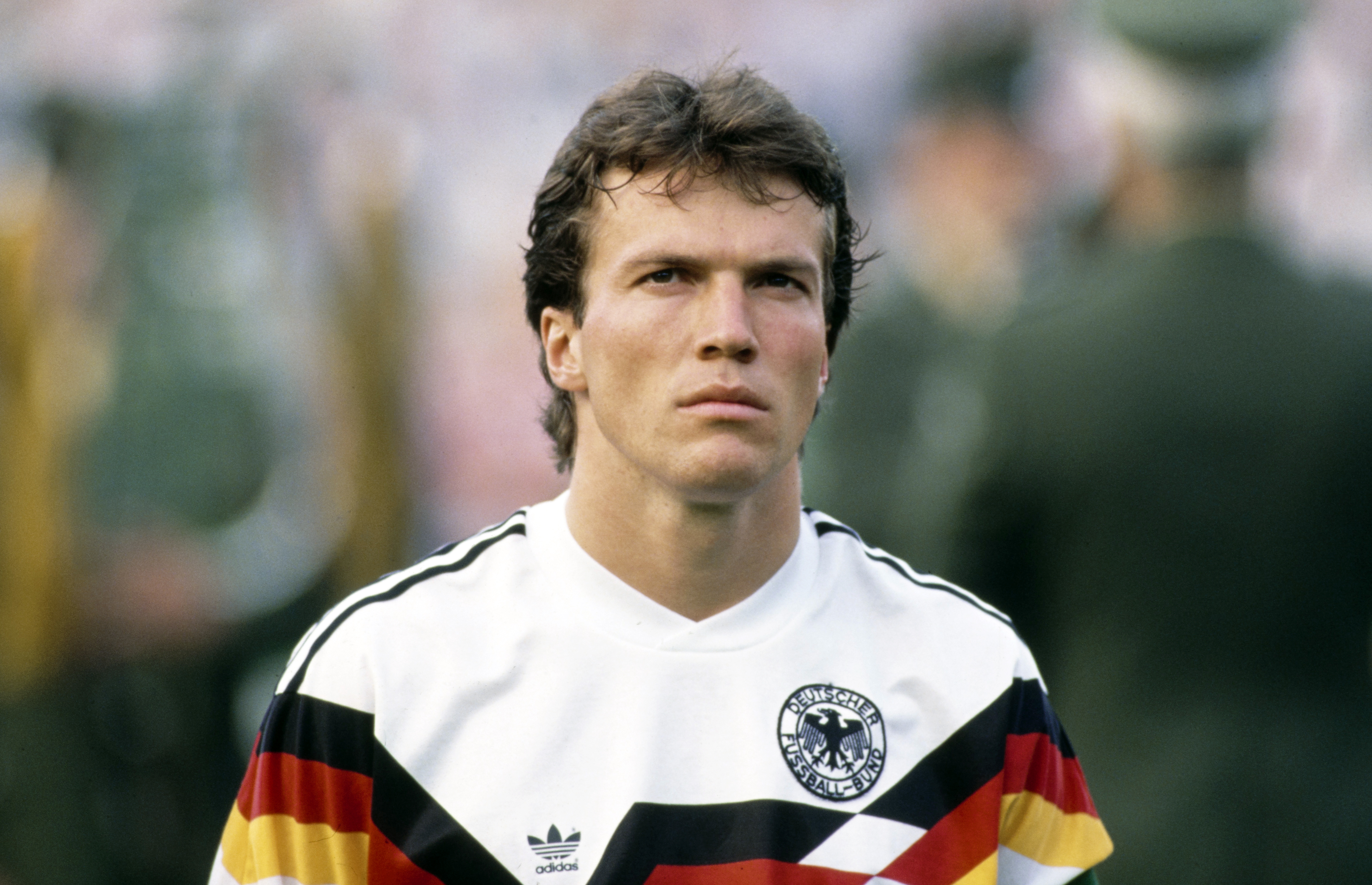
The defining moment of Lothar Matthaus' impressive career came with West Germany's World Cup win in 1990, but he had been an extraordinary player for many years by then.
A box-to-box midfielder who would drive forward and often score goals from distance, Matthaus made his international debut in 1980 and was part of the team which lost to Argentina in the 1986 World Cup final. After a four-year spell at Bayern Munich, he joined Inter in 1988 and was one of the best midfielders in Europe for the second half of the decade.
8. Enzo Francescoli
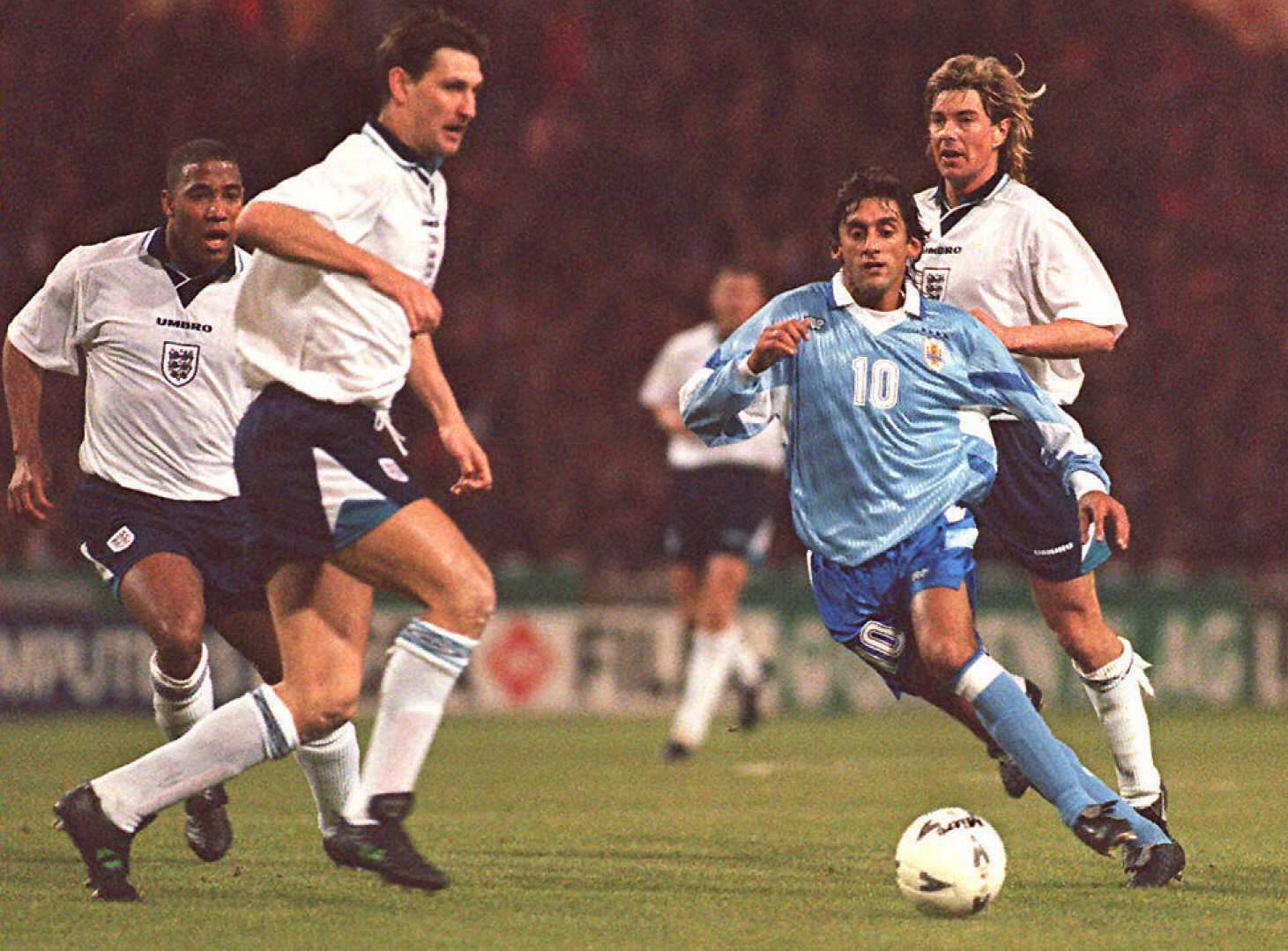
Nicknamed "El Príncipe" ("The Prince"), Enzo Francescoli is a Uruguay legend and one of the great South American playmakers.
A stylish attacking midfielder who was excellent with both feet, Francescoli was South American Footballer of the Year in 1984 and starred in back-to-back Copa America triumphs for Uruguay in 1983 and 1987. He was so good that the great Zinedine Zidane named a son after him.
7. Bernd Schuster
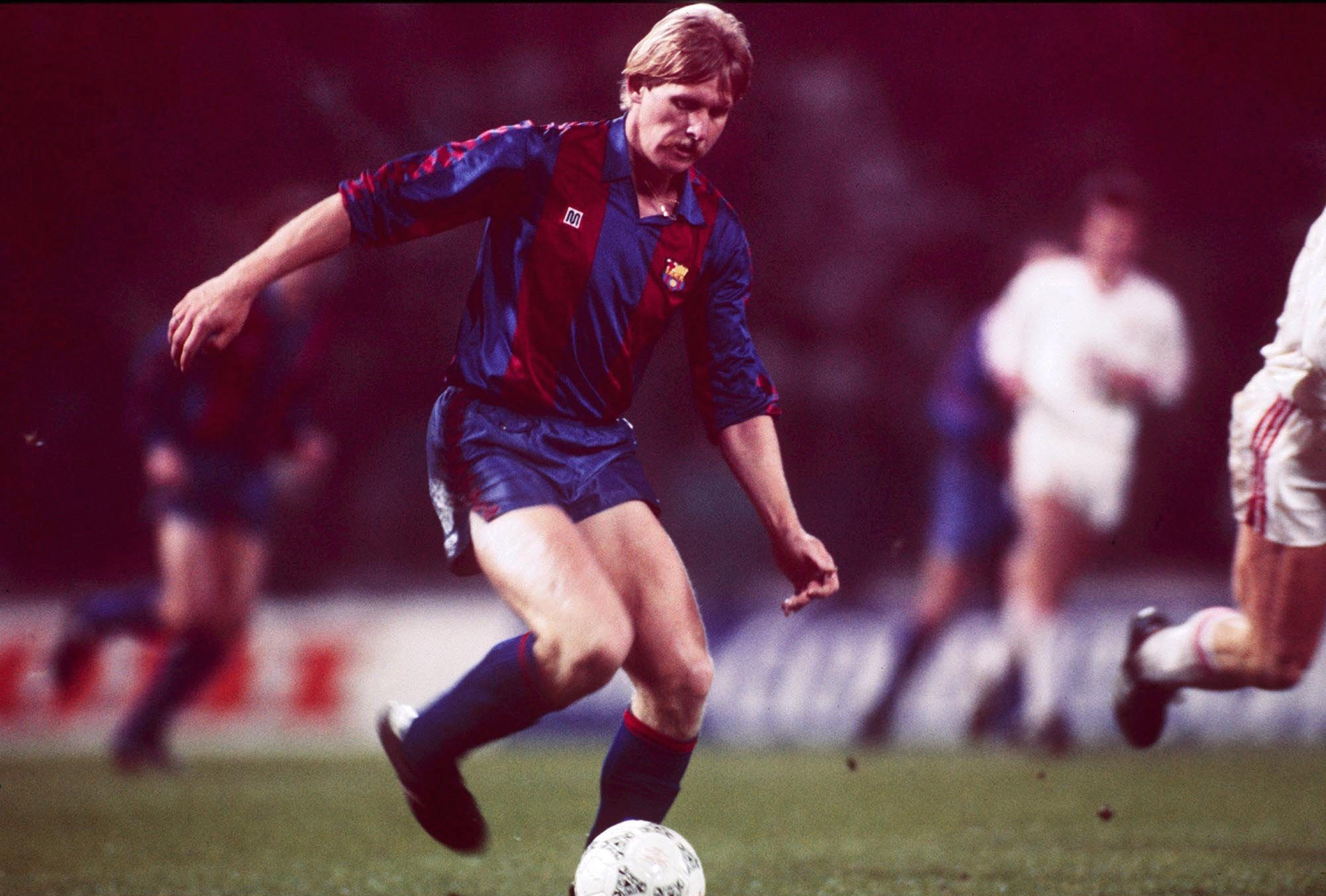
Bernd Schuster won the European Championship with West Germany in 1980 but cut short his international career four years later following a series of disagreements with the German Football Federation.
Unusually, he played for Barcelona, Real Madrid and Atletico in a successful 13-season spell in Spain – with eight of those spent at the Catalan club. An excellent passer who could orchestrate moves from deep or feature as an attacking midfielder, Schuster was Ballon d'Or runner-up in 1980, finishing third in 1981 and 1985.
6. Socrates
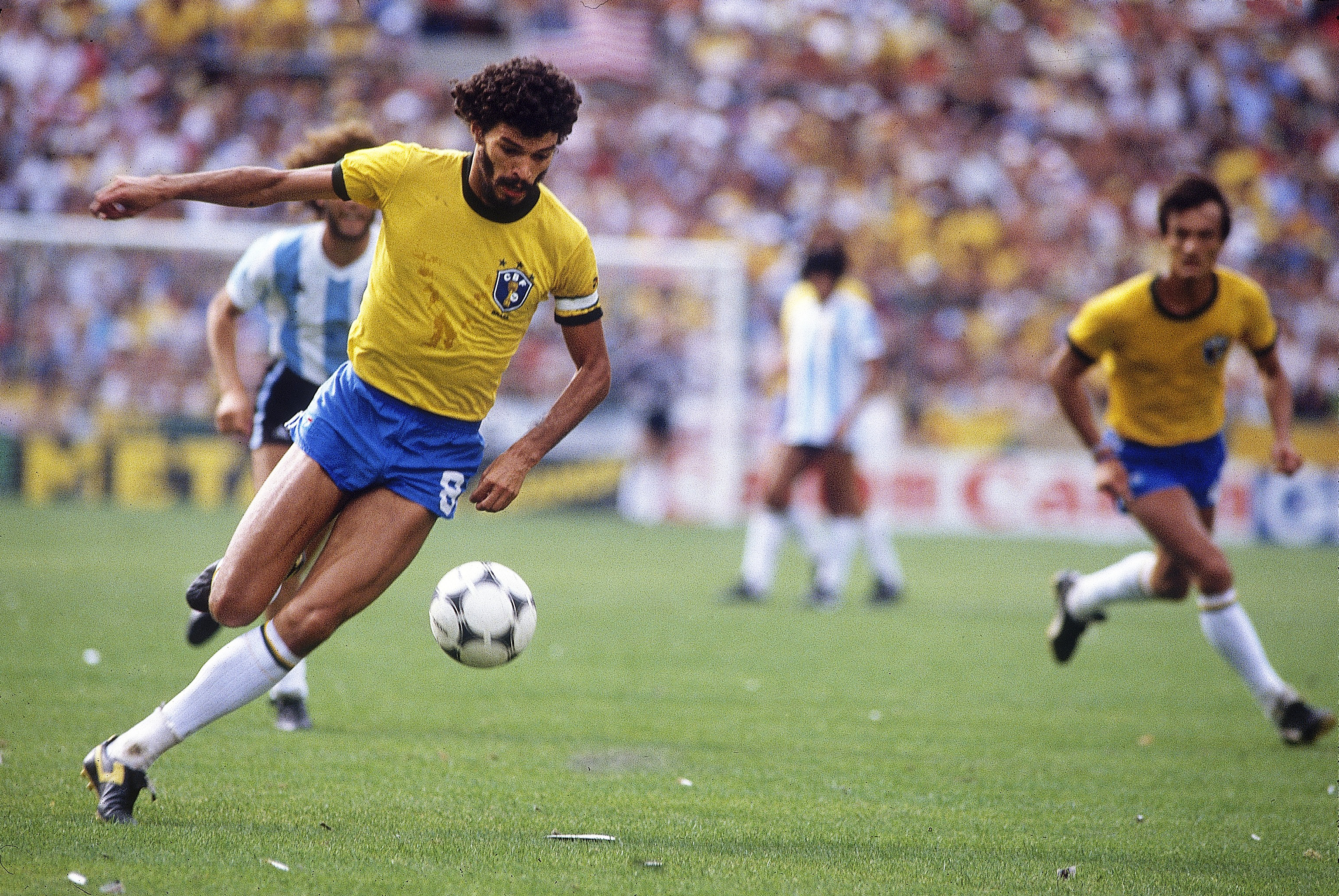
Socrates was different. With a philosopher's name and a medical degree, the Brazilian also sported a beard and played in a headband, making him something of a cult hero as captain of the great team of 1982. But he was also an exceptional footballer.
A former striker who dropped deeper to operate in midfield in his professional career, Socrates was an intelligent, gifted and elegant playmaker. He was known for his precise long passing and excellent vision and also boasted a good goals record, scoring 22 in his 60 games for Brazil.
5. Frank Rijkaard
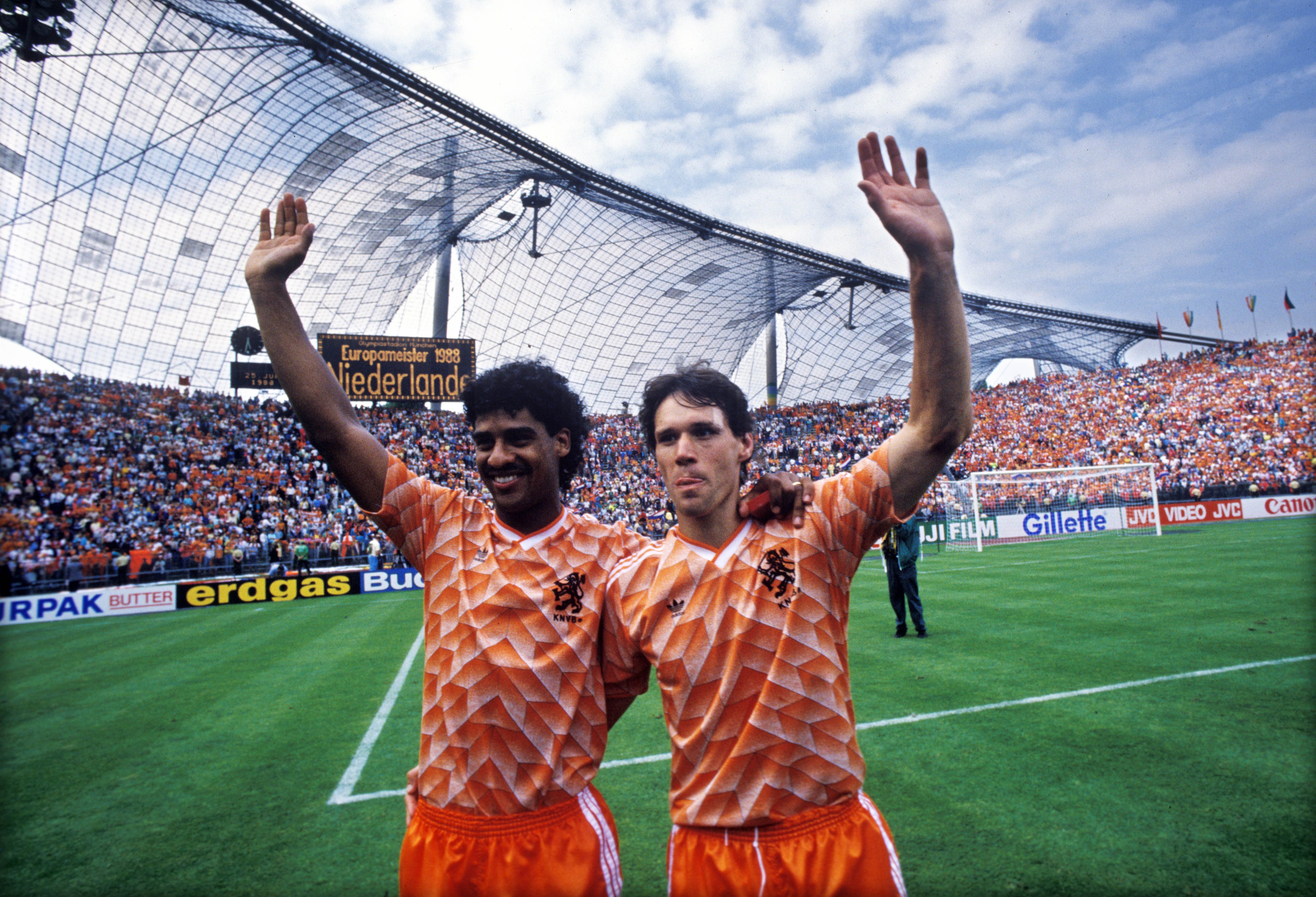
Elegant, technically gifted and physically strong, Frank Rijkaard was the finest defensive midfielder of his generation and the linchpin for two great clubs sides in the 1980s: Ajax and AC Milan.
Rijkaard helped each to European Cups, along with a host of other trophies, and was a key part of the Dutch side which won Euro 1988. He was third in the Ballon d'Or in both 1988 and 1989.
4. Zico
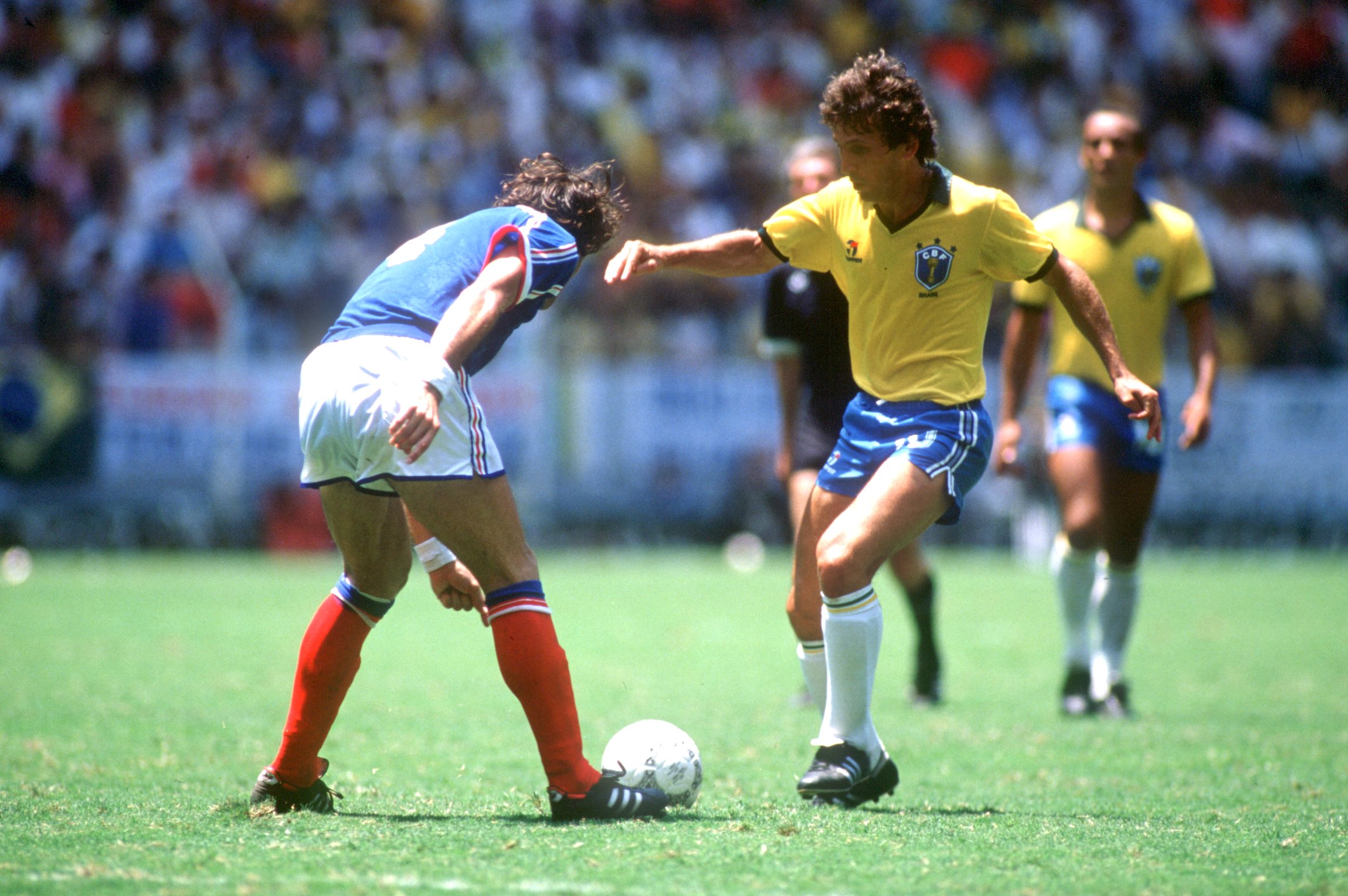
Zico may have been the world's best player in the late 1970s and early 1980s. Nicknamed "White Pele", he is also often referred to as the greatest Brazilian footballer never to have won a World Cup.
He was the star of Brazil's 1982 and 1986 teams, an elegant playmaker with superb dribbling ability and outstanding technique. A legend at Flamengo, where he spent most of his career, Zico is also one of the best free-kick takers in the history of the game.
3. Ruud Gullit

Comfortable in midfield, attack or as a sweeper, Ruud Gullit combined impressive athleticism with poise and grace. He was one of the best players in the world for much of the 1980s.
After starting out as a sweeper, he became an attacking midfielder and later a partner for Marco van Basten up front with AC Milan and the Netherlands. But he was at his best between the lines, driving forward from midfield with his excellent dribbling, power and balance. He helped Milan to two European Cups at the end of the 1980s and won Euro 1988 with the Netherlands. He also took home the Ballon d'Or in 1987 and was runner-up the following year.
2. Michel Platini

For a period in the early 1980s, Michel Platini was arguably the best player in the world. An elegant playmaker, the Frenchman was a free-kick specialist, a deadly finisher and a wonderful passer.
He claimed three consecutive Ballons d'Or in the 1980s, led France to glory at Euro 1984 and also won a series of important prizes with Juventus – including the European Cup in 1985.
1. Diego Maradona
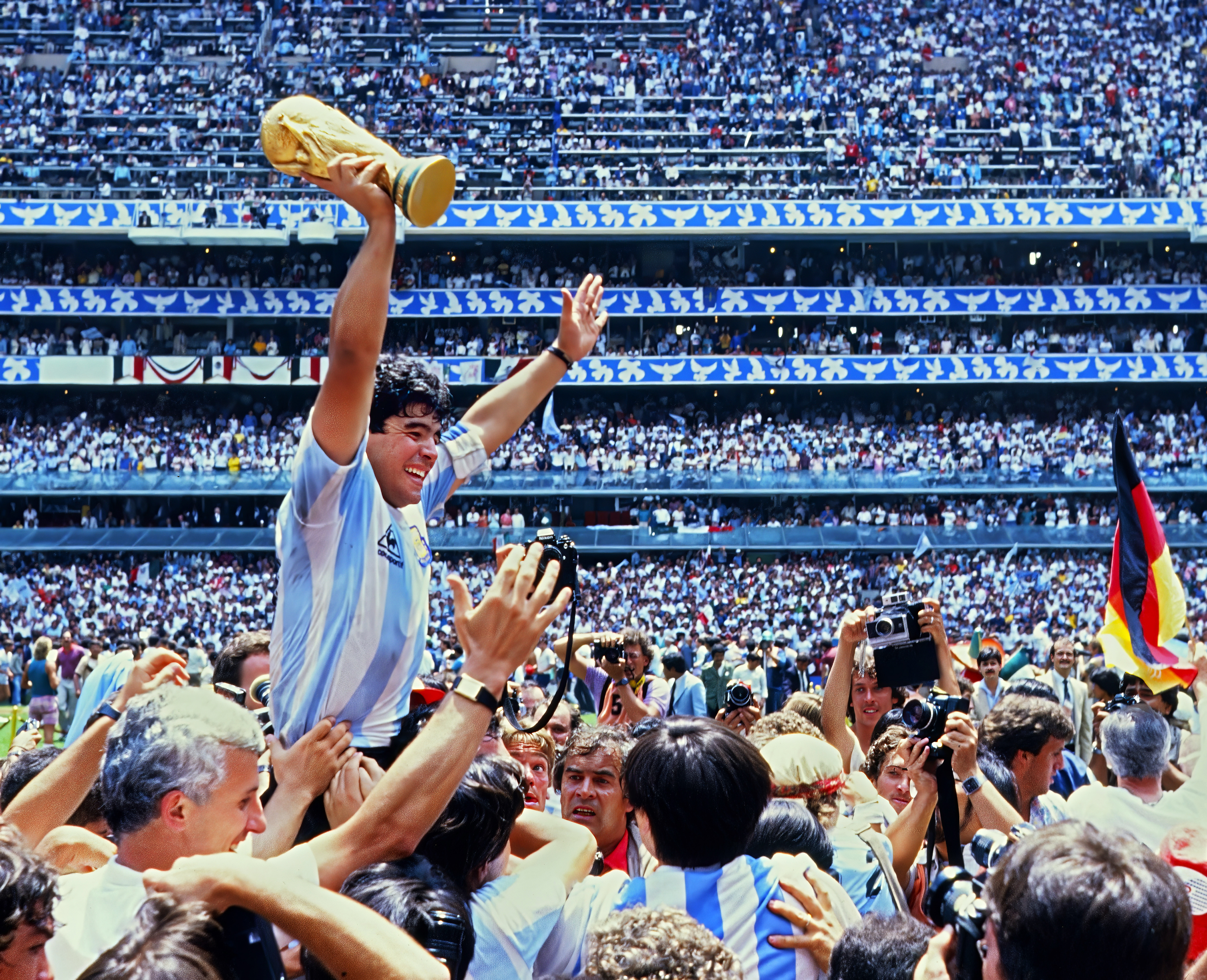
Diego Maradona was the world's finest footballer for the second half of the 1980s, leading Argentina to World Cup glory in 1986 and guiding Napoli to the first Serie A titles in their history – along with the UEFA Cup in 1989.
Had South American players been eligible for the Ballon d'Or, the legendary number 10 would have won it several times. In the 1990s, his career fell into decline amid off-pitch scandals, failed drugs tests and fitness issues, but no other player could match Maradona in the 1980s.







